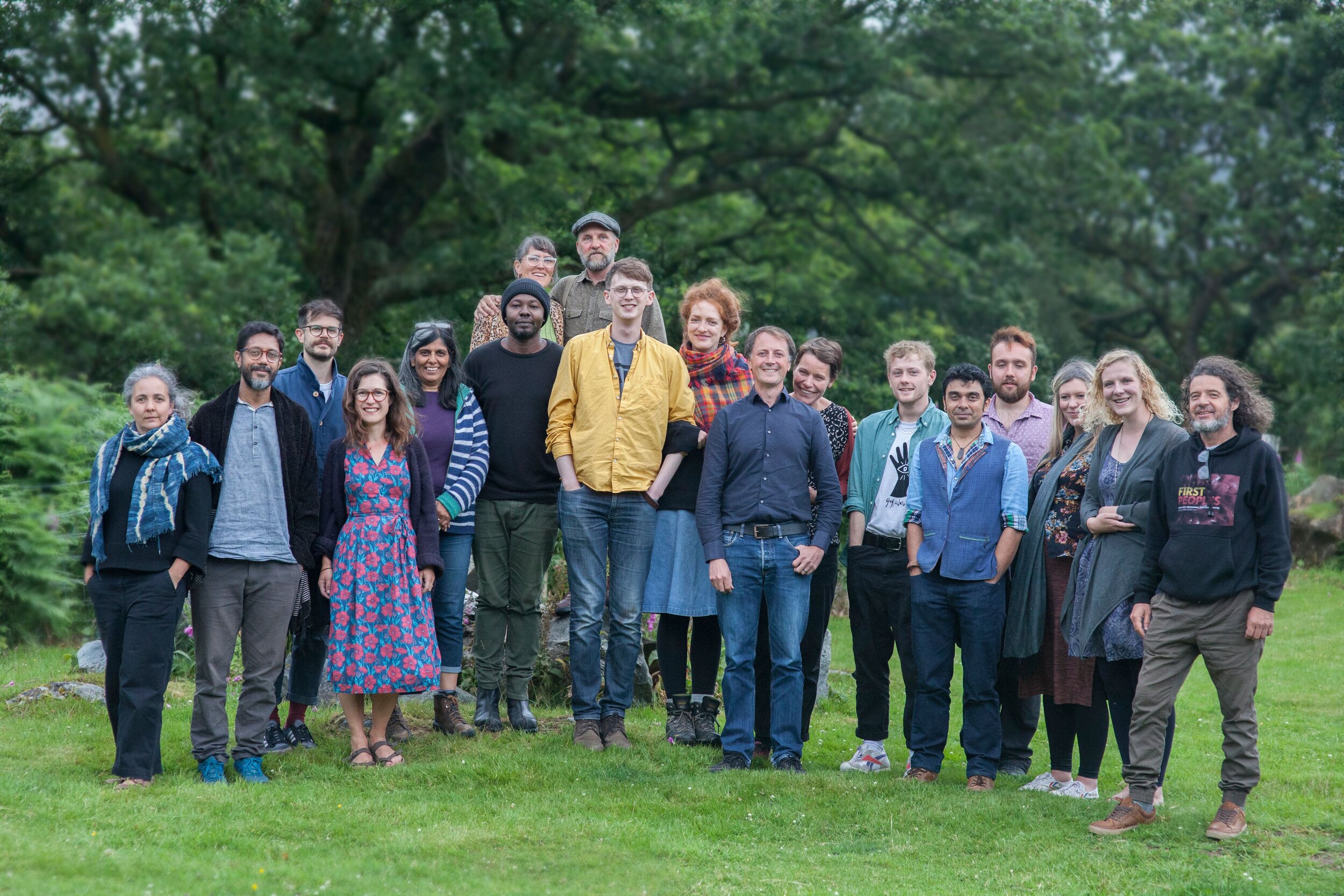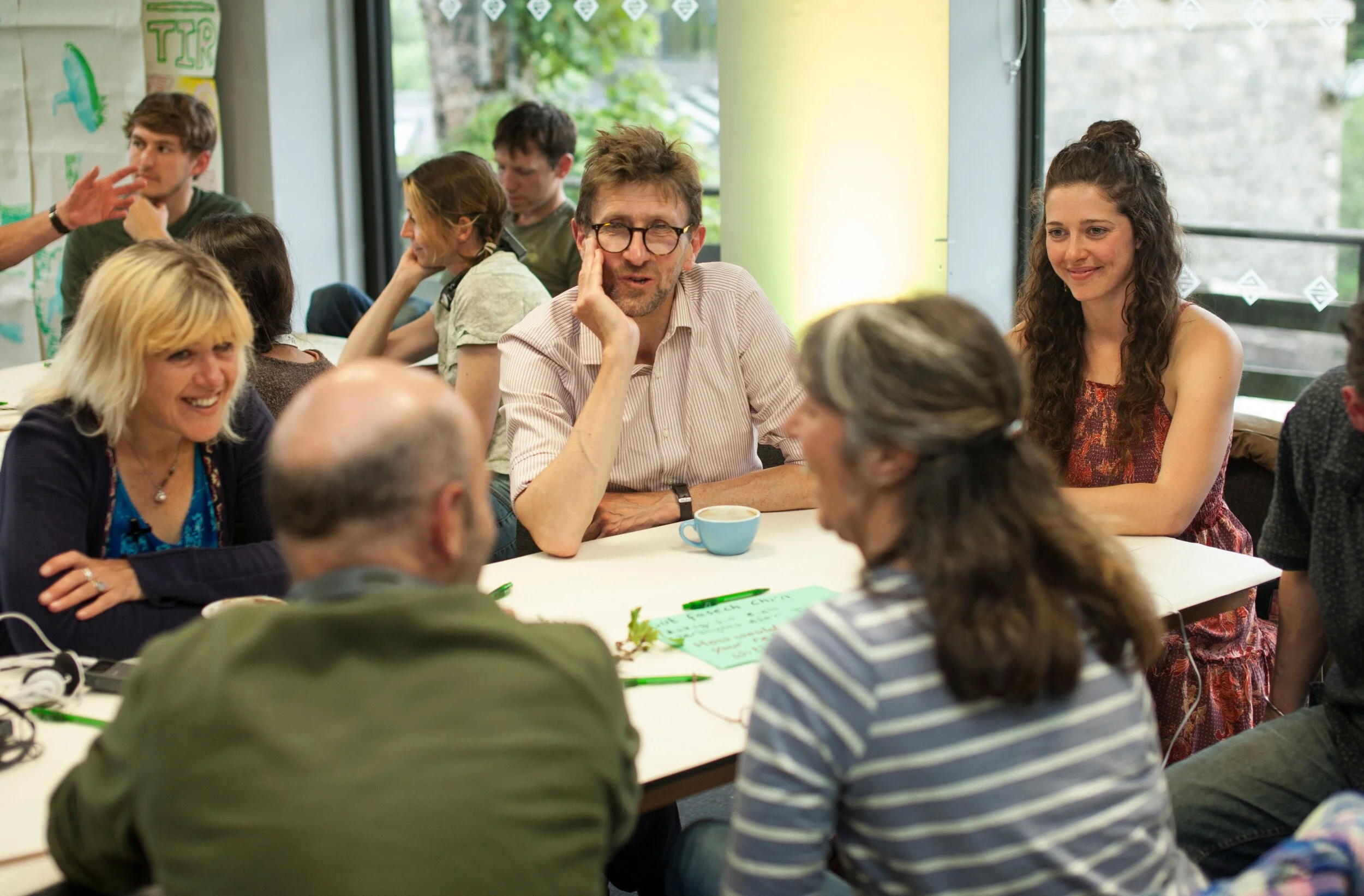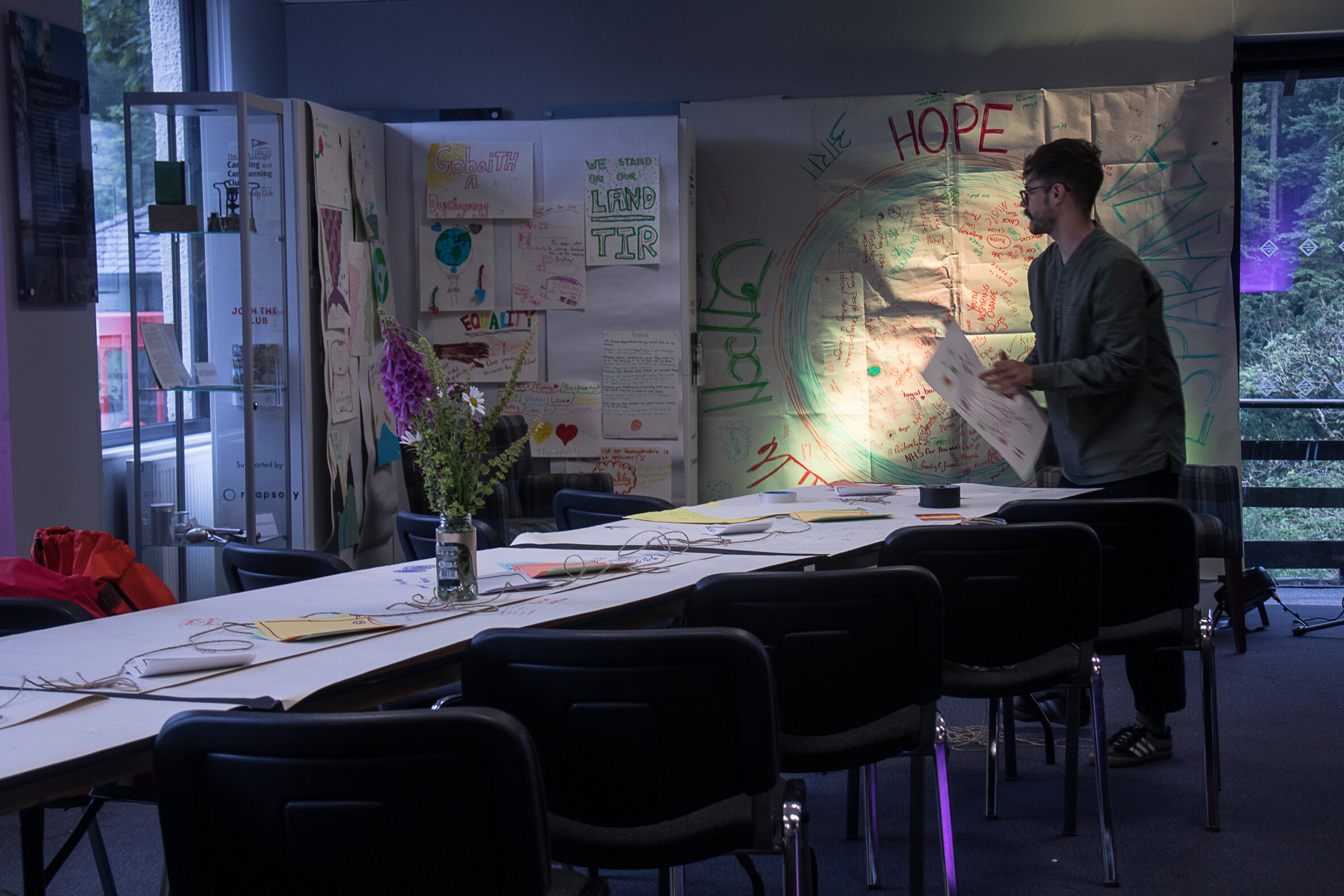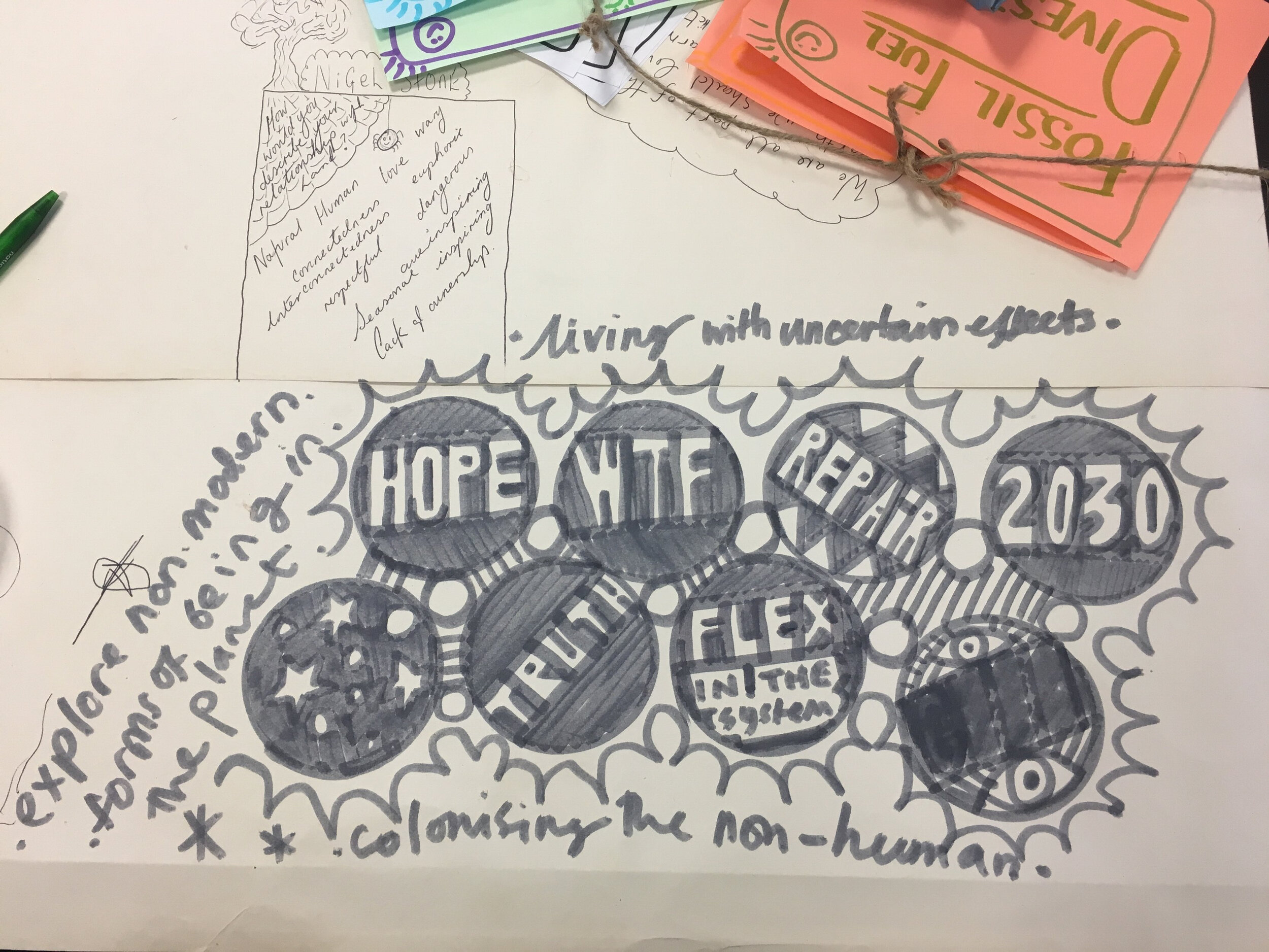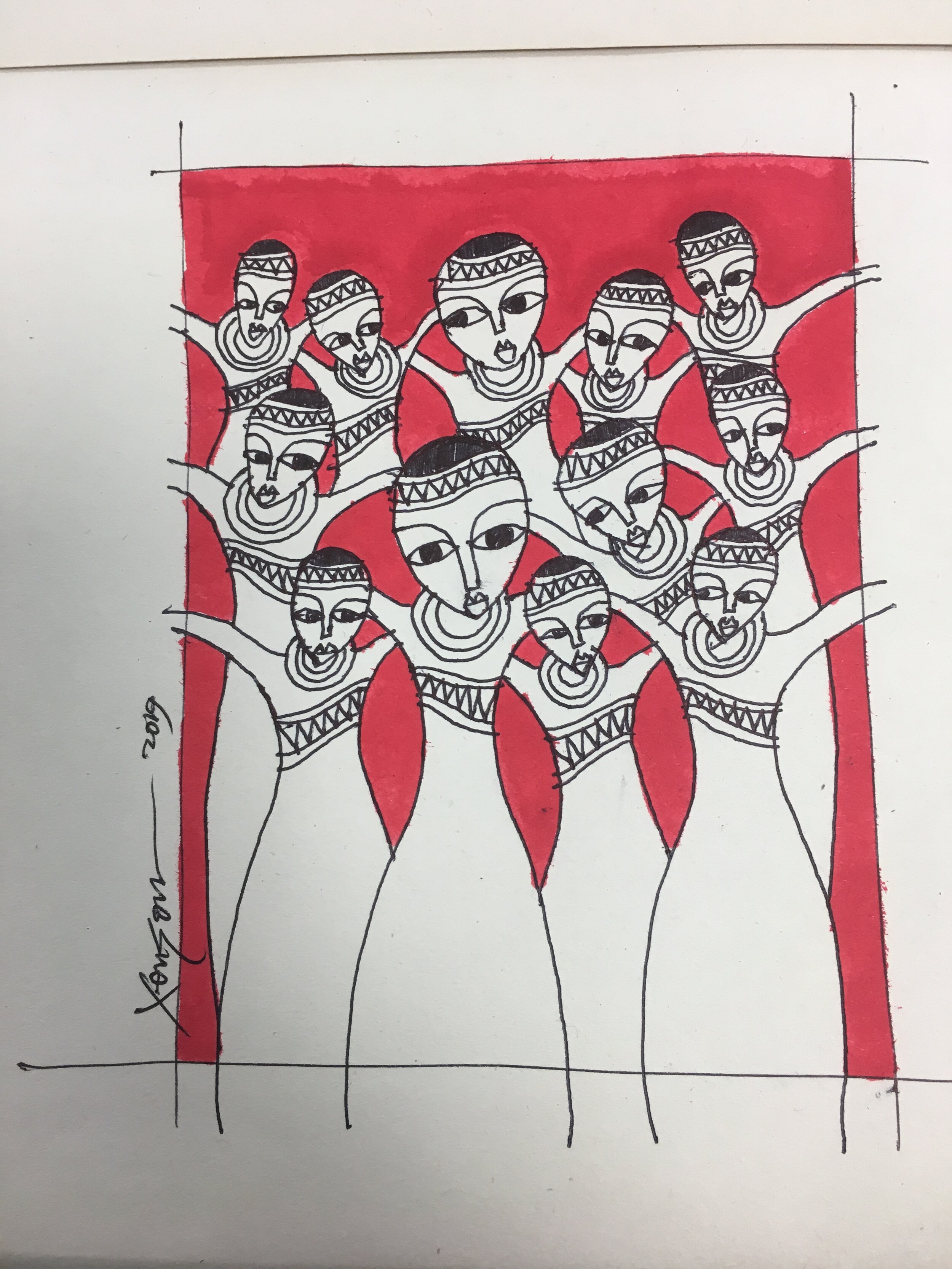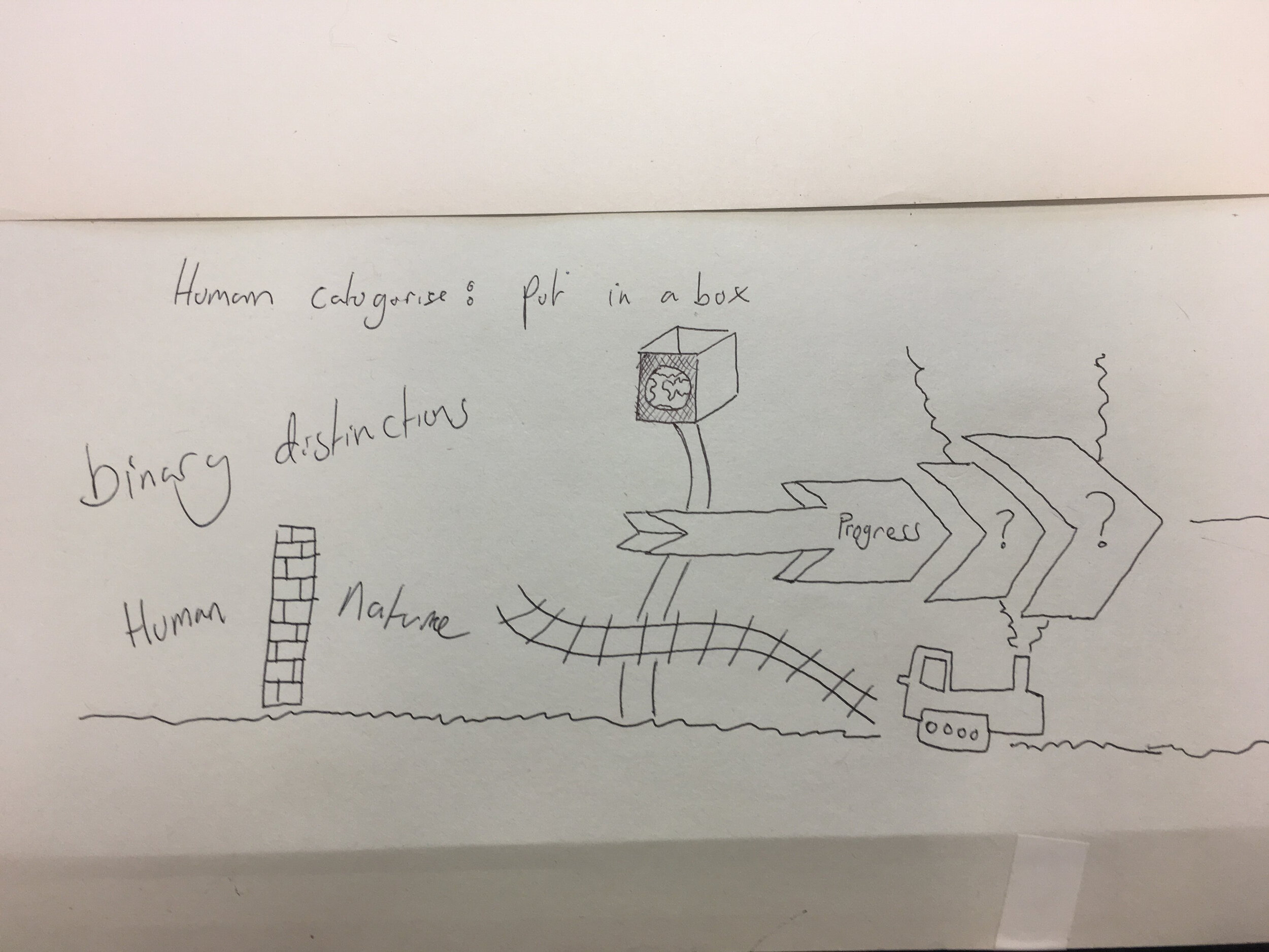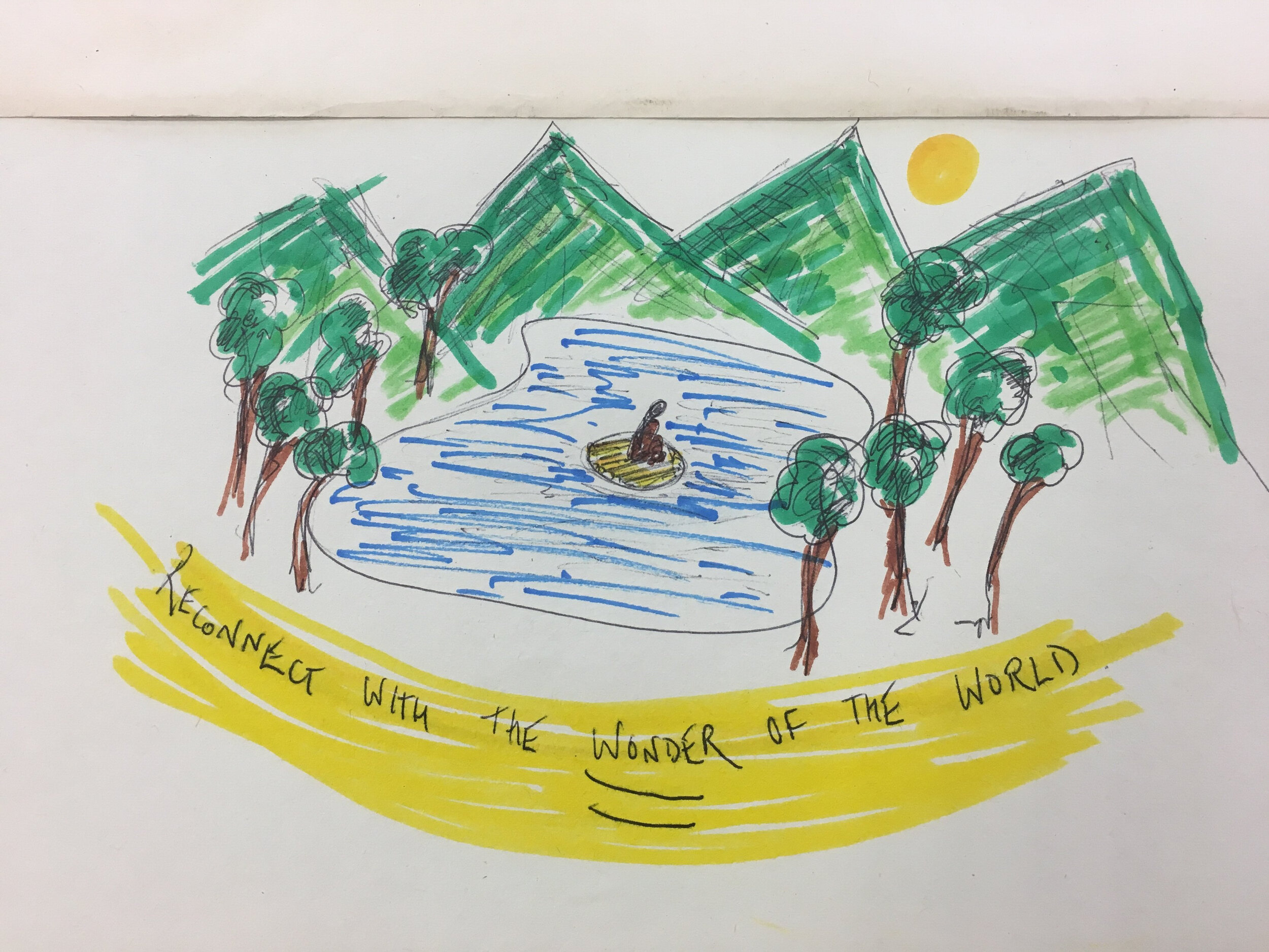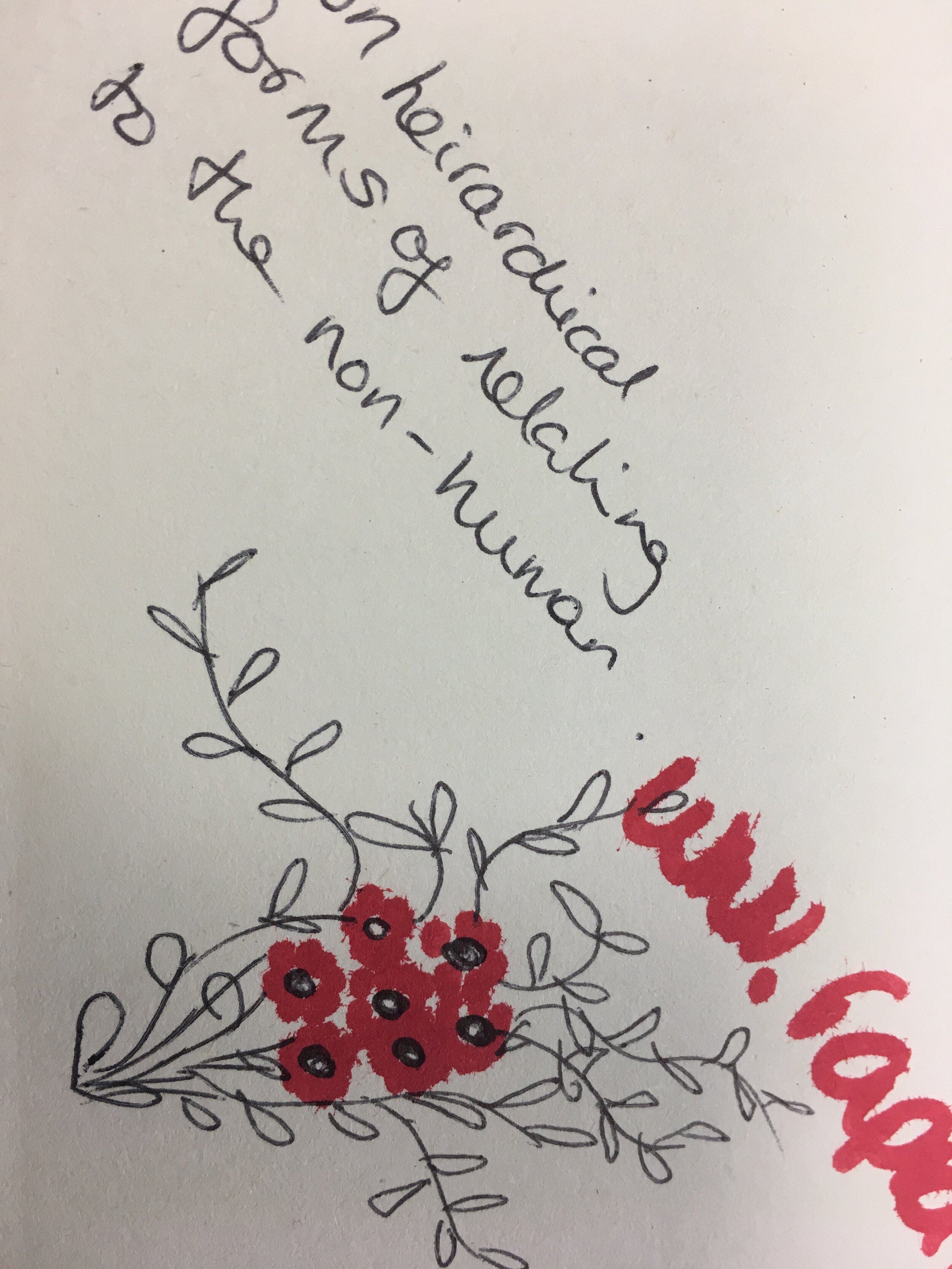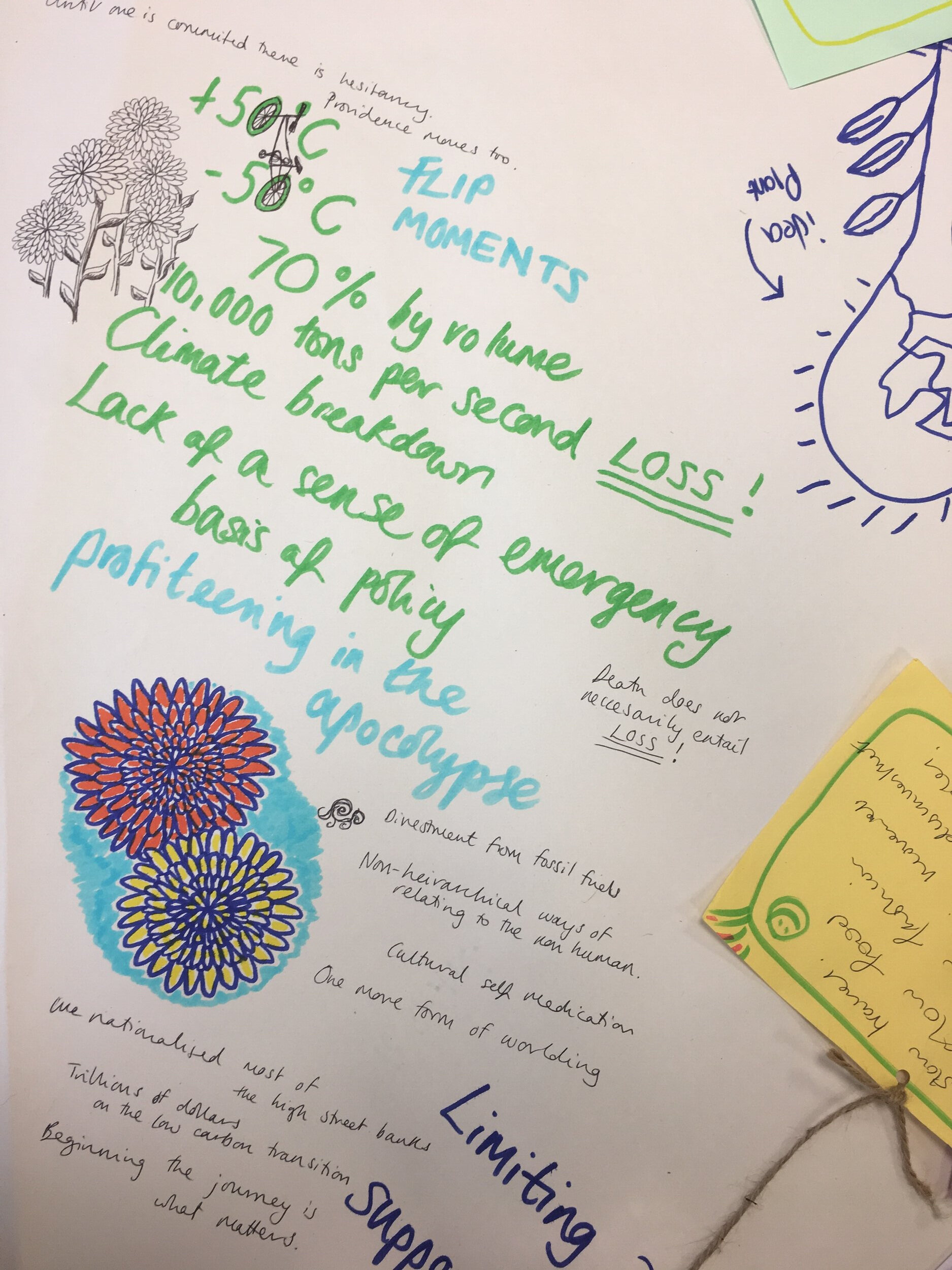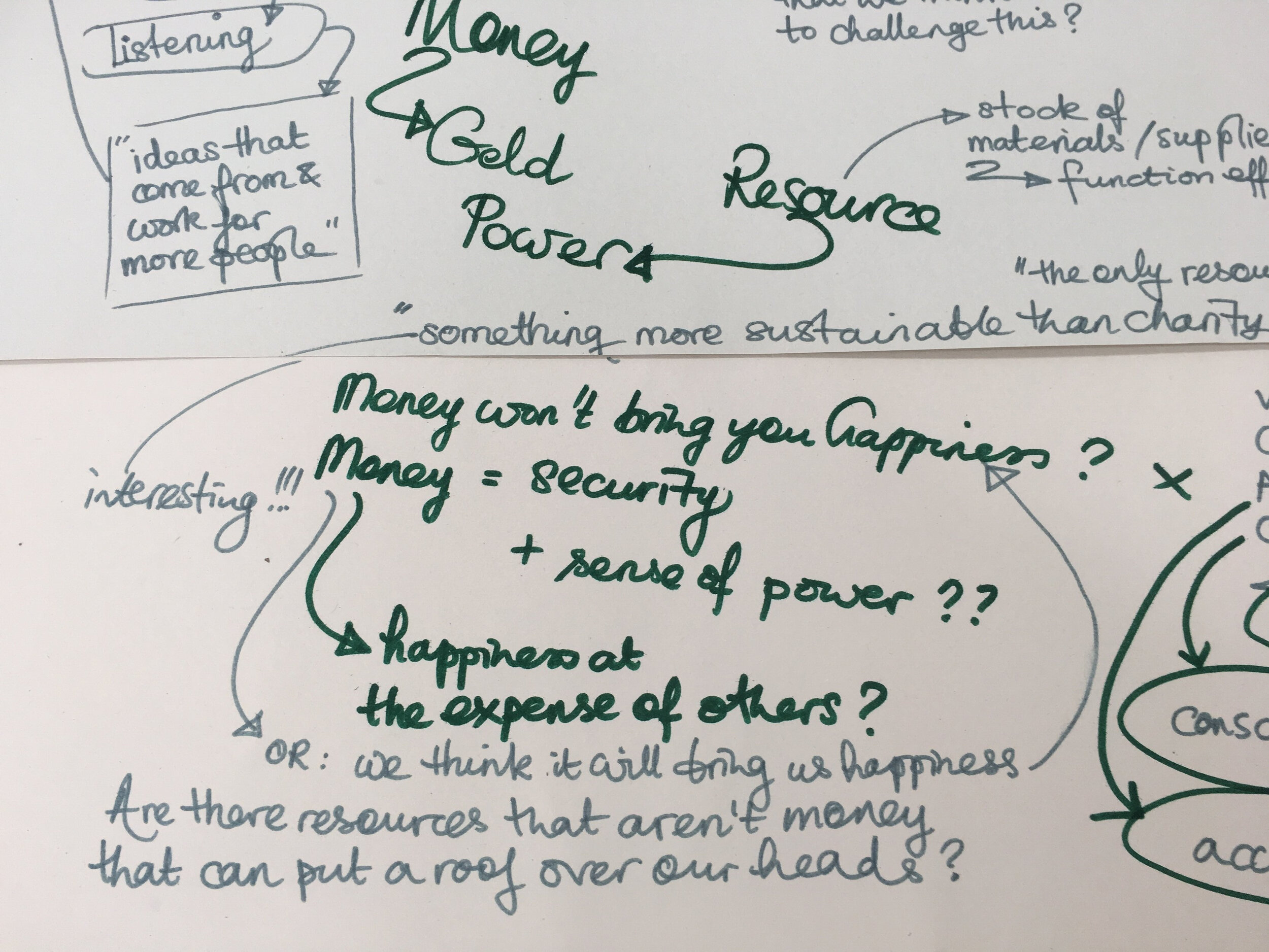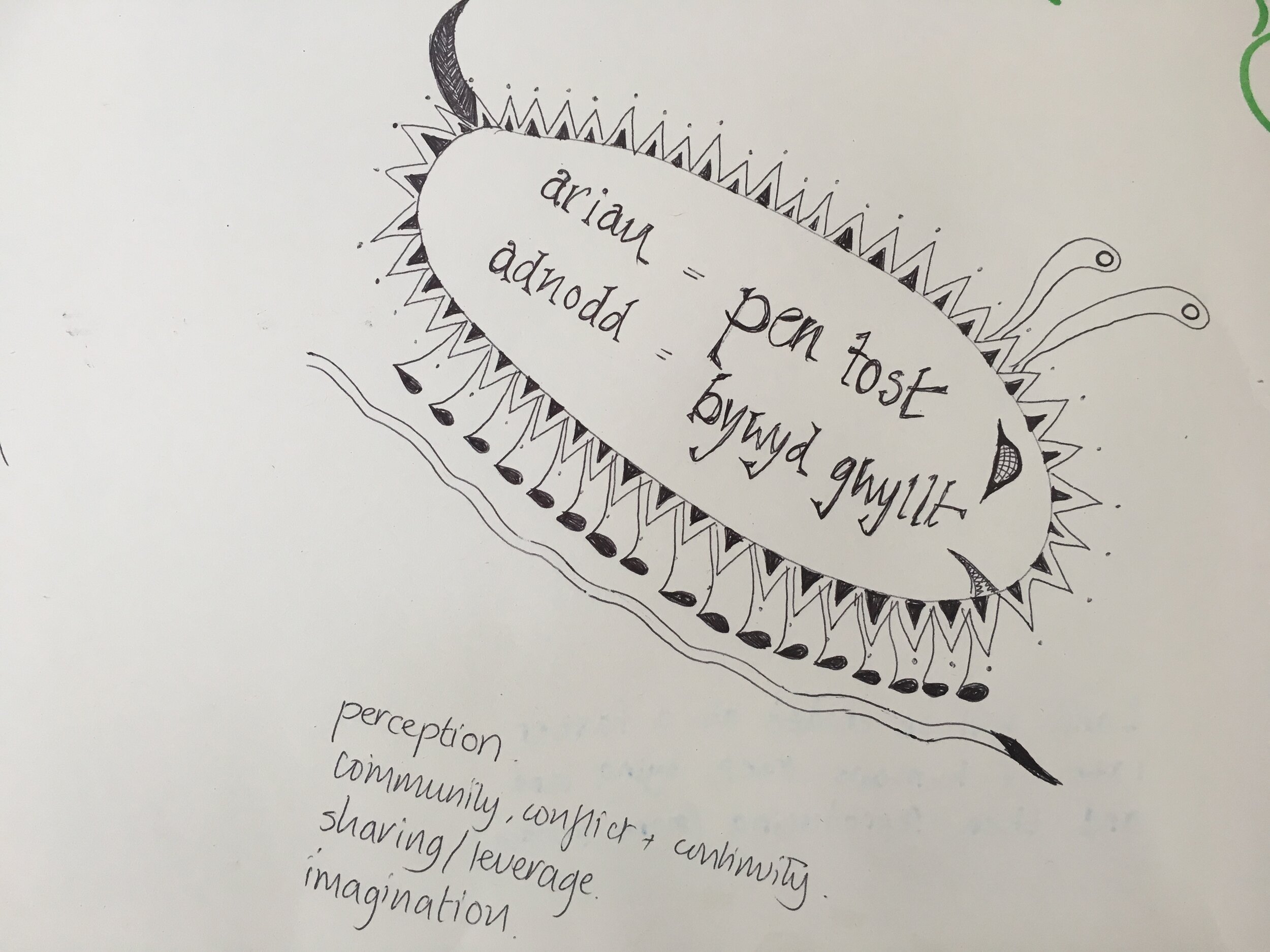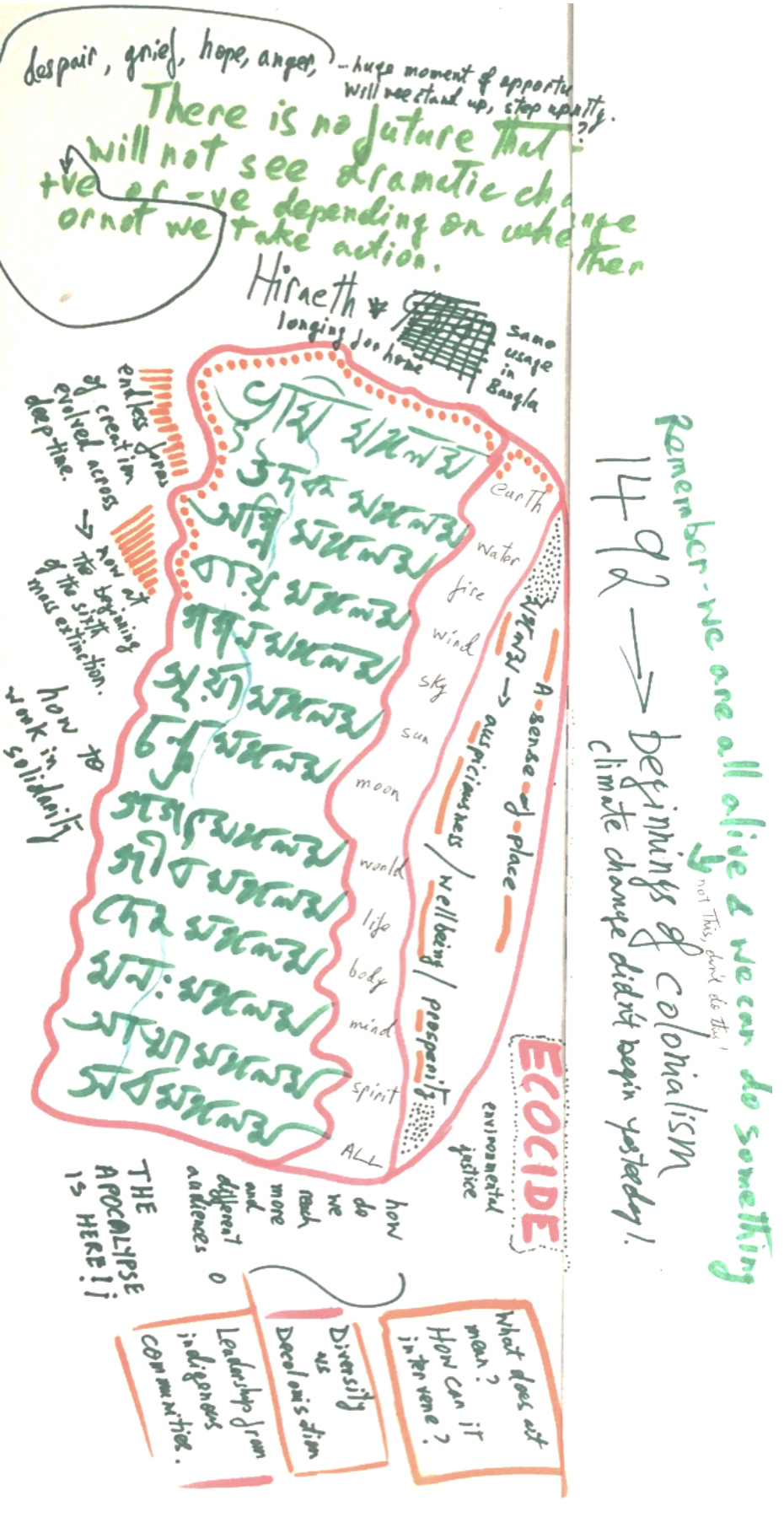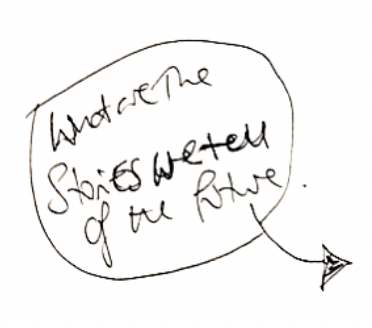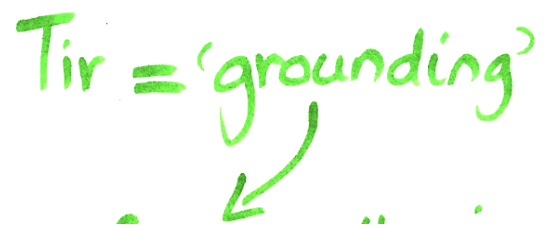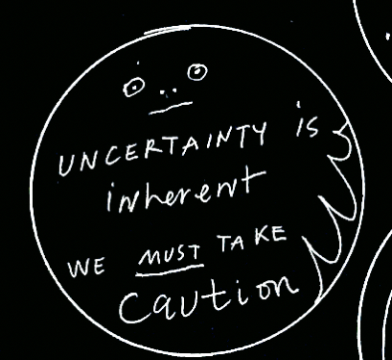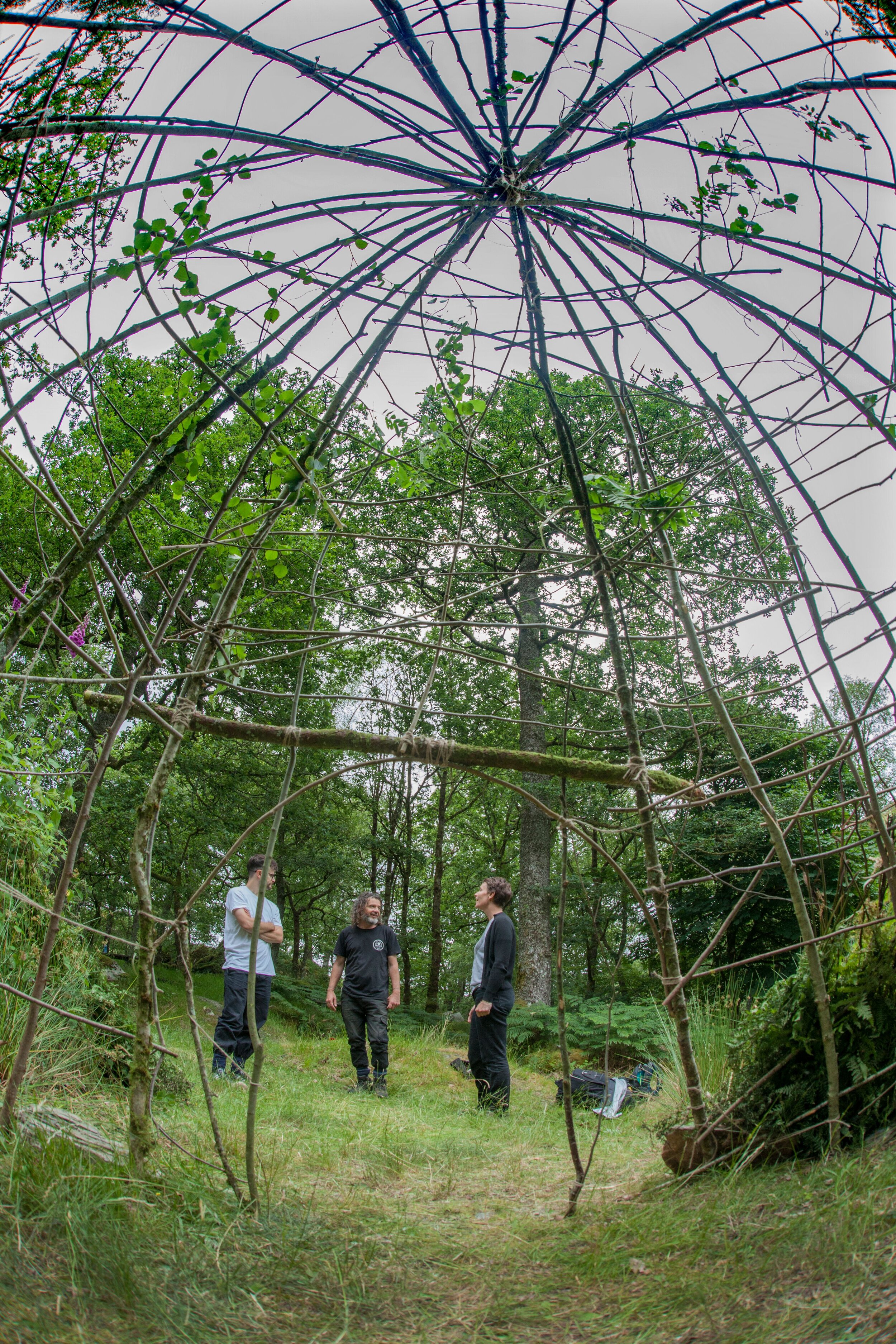EGIN
- International Climate Change Residency with National Theatre wales
Vikram Iyengar
The EGIN family. Photo by Steve Peake
EGIN was a two-week international climate change residency by National Theatre Wales (NTW), led by Simon Coates, Head of Creative Development at NTW, in partnership with Natural Resources Wales and with support from the National Trust, British Council Wales and Snowdonia National Park. The residency was held in Capel Curig, rooted in the local landscape, its complex social history, and insight from active local communities. See the film of the residency here
Simon created a residency like no other - the spirit of it was one of challenge and imagination, a safe environment in which to be creatively experimental. 12 artists, drawn from across Wales and from Uganda, Tasmania, Bangladesh and India. There was no expection of outcomes, and this led to some remarkable explorations. We found ourselves individually and collectively in some weird, wonderful, dark, devastating, confusing and exciting places (physically and metaphorically).
I was involved as ‘creative development associate’, with the aim of helping to create the first locally connected residency for NTW. It was - without exaggeration - a life transforming experience, and it has, I’m delighted to say, left a lasting legacy in the area too. This page is a record of some of the ways in which we created a locally connected residency… and some of the insights that came out of it.
Xenson. Photograph by Steve Peake
LAND • MONEY • REBELLION • HOPE climate conversations
We developed this series of evening events as a kind of ‘porous/disruptive backbone’ for the residency, providing a space for deeper reflection and conversation between the artists in residence, people living (or visiting) locally and ‘provocateurs’ of international standing and perspective. We hoped by focusing on environmental justice (inspired by the work of Gentle Radical and their ‘Decolonising Environmentalism’ symposiums of 2018), by experimenting with different room layouts, video, music, sound and theatrical elements as conversational elements, and by bringing together a diverse group of people with an emphasis on listening to diverse views, rather than agreeing (and disagreeing), something interesting might emerge. I facilitated the events, working on an evolving ‘shape’ for each evening with the artists in residence, ‘provocateurs’, participants and NTW staff. We also arranged for some of my favourite musicians from the area to come and play, so that music was part of the conversation. Listen to the podcasts of the events here (scroll down til you see them!)
LAND. Thursday 4th July 2019.
With Suzanne Dhaliwal and Aaron Thierry, who discussed rights and relationships to land and explored the challenges ahead, and music from Eve Goodman. Room layout: Classic Cabaret style, seated around small tables, up to 6 at a table. Whole room facing inwards towards the stage/screen. Walls ‘decorated’ with output of Ysgol Dyffryn Ogwen school’s 'land’ discussions
Suzanne Dhaliwal at the LAND conversation. Photo by Steve Peake
Table discussions at the LAND conversation. Photo by Steve Peake
MONEY. Sunday 7th July 2019.
With Rabab Ghazoul and Radha Patel of Gentle/Radical, who explored which ‘resources’ are at our disposal and how we might use these to bring about radical change, and a performance by David Hopewell. Room layout: Cabaret style again, but facing outwards this time, towards the mountains. Walls ‘decorated’ with output of Ysgol Dyffryn Ogwen school’s 'money’ discussions
REBELLION. Monday 8th July 2019.
With Asad Rehman, who looked at the power rebellious actions can have when committed to the building of shared visions of the future, and performances from The Marmaladies, Sioned Eleri Roberts and Katherine Betteridge. Room layout: No tables. All chairs piled in centre of room. Access to room restricted, having to follow signs around the maze of corridors to get in. Walls ‘decorated’ with output of Ysgol Dyffryn Ogwen school’s 'rebellion’ discussions
HOPE. Thursday 11th July 2019.
With Andrew Simms and Ignasi Torrent, who explored some inspiring examples of urgent and hopeful projects and approaches around the world, and performances from Rob Spaull and Charles Gershom of Accretion Entropy. Room layout: Long ‘feast’ type tables. Walls ‘decorated’ with output of Ysgol Dyffryn Ogwen school’s 'hope’ discussions
The events, evolving with input from artists, musicians, NTW staff, provocateurs and locals right up to the moment each started, were fully booked, around fifty people at each. Some people came to all four, others to just one or two. Insights and reflections were recorded by participants writing on ‘table cloths’, and Lisa Heledd Jones has created some wonderful pod casts, so you can get a flavour of it all.
Dave (centre) created a structure in the woods for his ceremony on the last night (also in the picture is Simon Coates and I). Photo by Steve Peake
Conversation ranged across personal connections to land to the enormity of the Tar Sands, from old ways of knowing to a global Green Deal, from drunken forests to ‘Be more Blaenau’, from leveraging resources and radical imagination to rapid transition. We faced climate change as a symptom (along with other symptoms such as colonialism, relentless extraction and monetization and the 6th mass extinction) of underlying assumptions and values.
Young people in particular seemed inspired throughout. But there were many ‘head in hands’ moments. Mine, particularly through conversation with Rabab Ghazoul and Suzanne Dhaliwal, was realising just how much ‘who I was’ and my relationship with Climate Change (and its ‘solutions’) was influenced by imperialist notions of power, control, exploitation and privilege. The very attitudes that created it in the first place. As Ignasi Torrent said: “If we think of ourselves as transformative actors in a position of reversing the implications of the Anthropocene, we would be placing ourselves back in the position that created all this”. Which is exactly what I’d been doing for about 30 years.
There is a Welsh idiom: “Yr awr dywyllaf yw’r un cyn y wawr[1]” and it felt a bit like that when Ignasi went on to talk of working with “aesthetics of uncertainty” which are “less to do with conquering, mastering, transforming the world, instead learning to live with uncertainty, which precisely addresses the creativity of the world and the openness of the future.” I’m very drawn to that.
All these climate conversations took place indoors, and one of the international artists, Dave mangenner Gough, from Tazmania, reminded us of ceremony and the missing voice of the earth. So in the last event, as we stood in our circle of hope, listening to the sounds of Accretion Entropy, reading out messages from each other, and as we watched Xenson channel the (neoliberal) spirit through Lord Penrhyn, and when Dave mangenner Gough closed the series with a ceremony in the woods, it felt like we were together becoming part of that more creative, open future. Diolch o galon, pawb!
Local connections
As well as the Climate Conversations, we developed links locally in other ways. Each artist was paired with a ‘local connector’ who lived and/or worked locally. Ranging from community development workers to artists to ecologists and systems thinkers, the role of the connector was to welcome their artist, helping them to connect with the place before they arrived, and support their artist in making connections, finding resources during the two weeks of their residency. Collectively, connectors attended a welcome evening at the start, and a ‘makers supper’ at the end.
Shân Ashton took xenson to visit local farmers, Tim Cumine supported Dave in finding wood and constructing his ‘Ty Unnos’, Lisa Hudson took her ‘Gwisg Mam’ out of the Merched Chwarel exhibition in Storiel so that Vikram could perform with it in the wood. Shân also got everyone us all taking part in the village tug of war at the Capel Curig Carnival. All the ‘support’ services, photography, video, catering, driving, sound recording, were sourced locally, became an integral part of the residency. In particular, Denise and Aiden (from Rachub) doing the catering and Steve Peake (from Capel Curig) doing the photography. The ‘orientation’ visits to farms, hydroschemes, quarries, conservation projects created ongoing connections with many people working in, writing about and researching in the area.
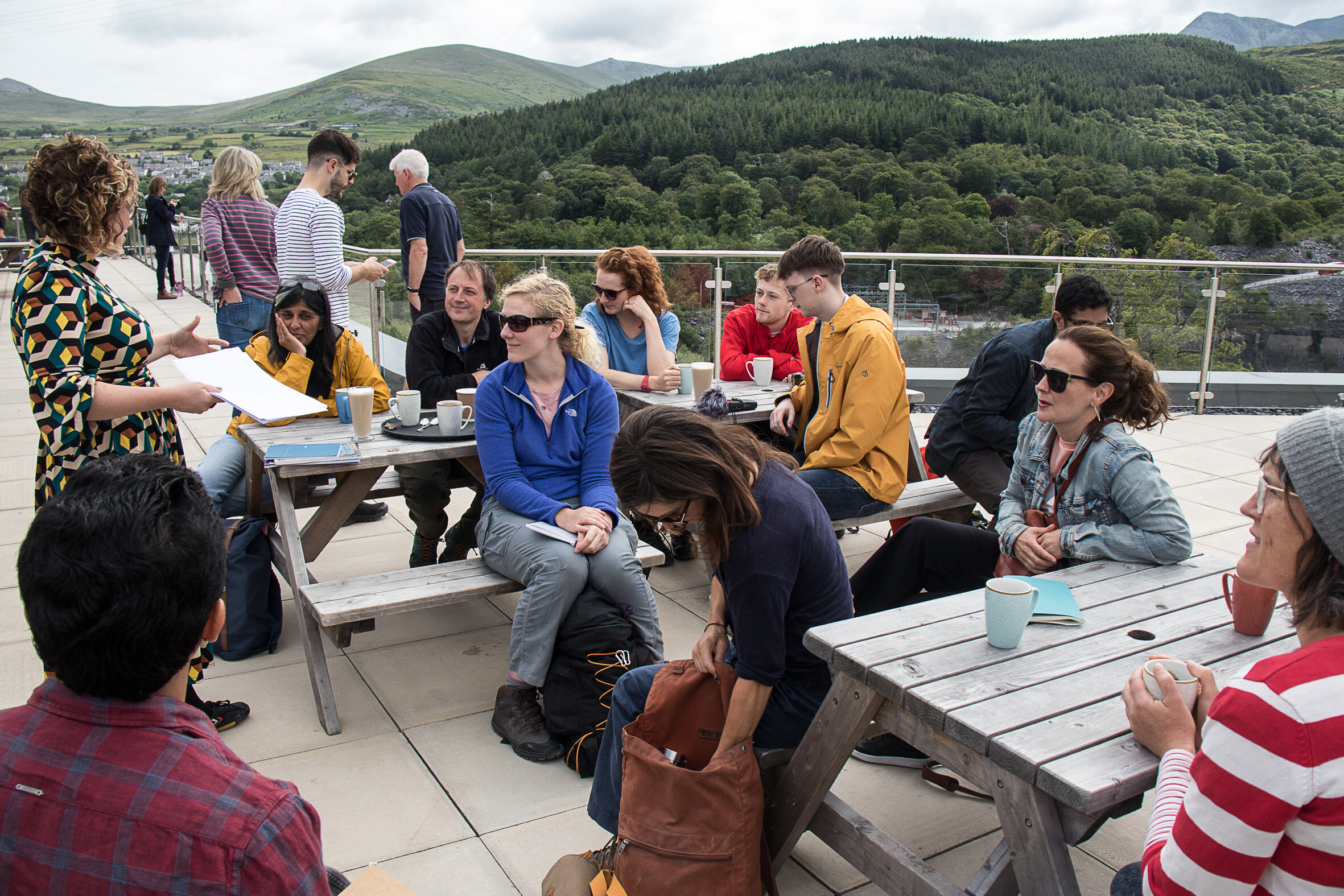
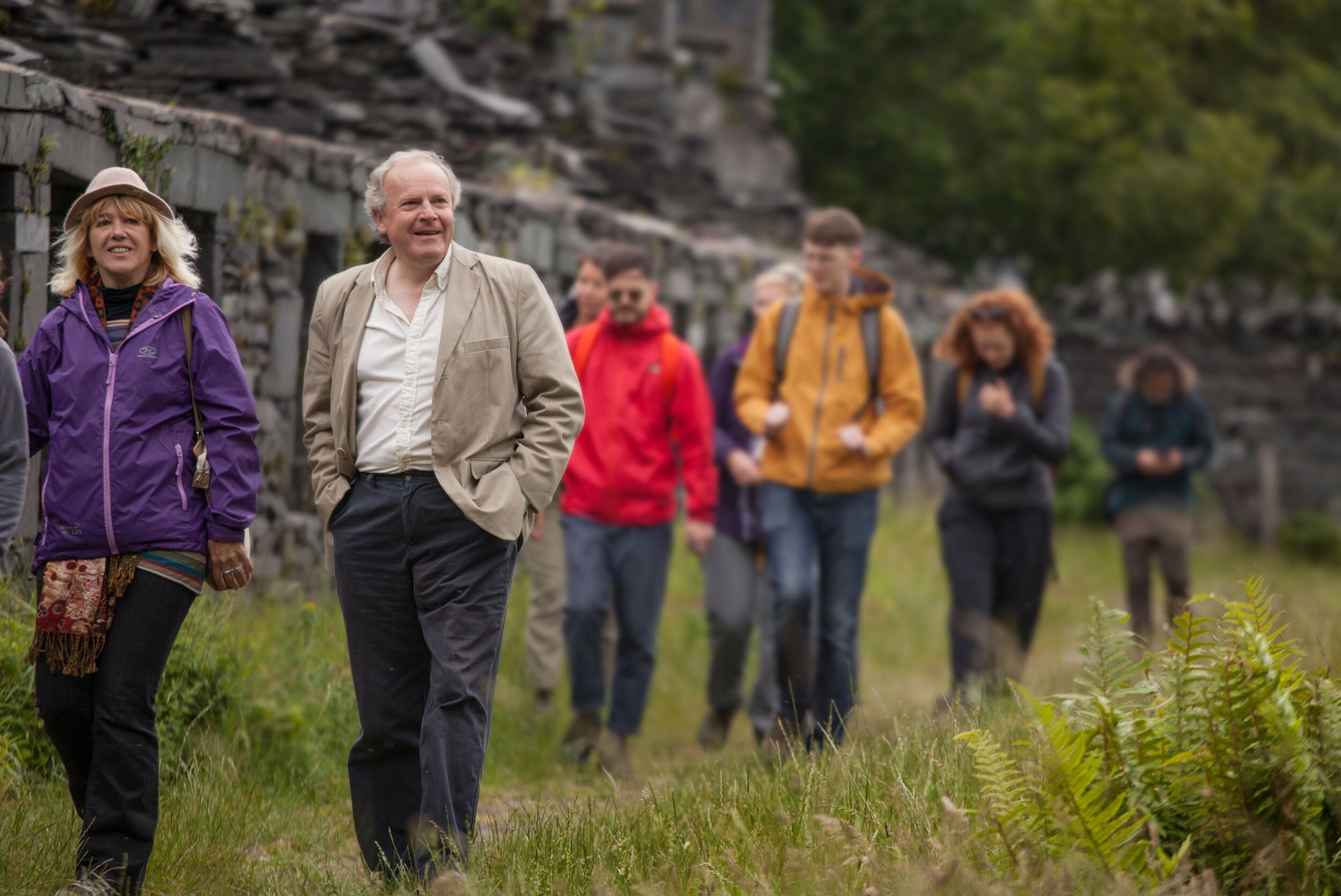
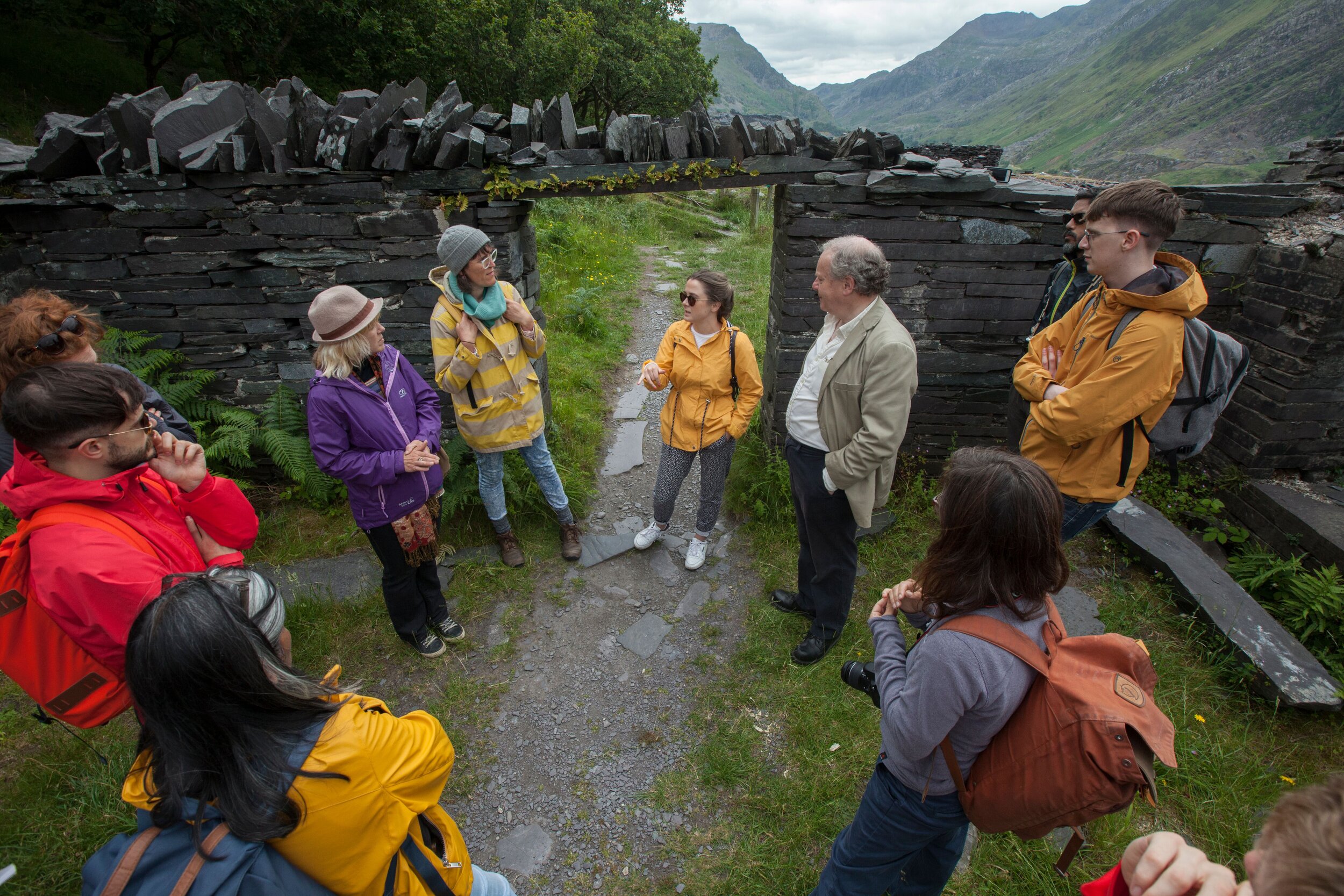
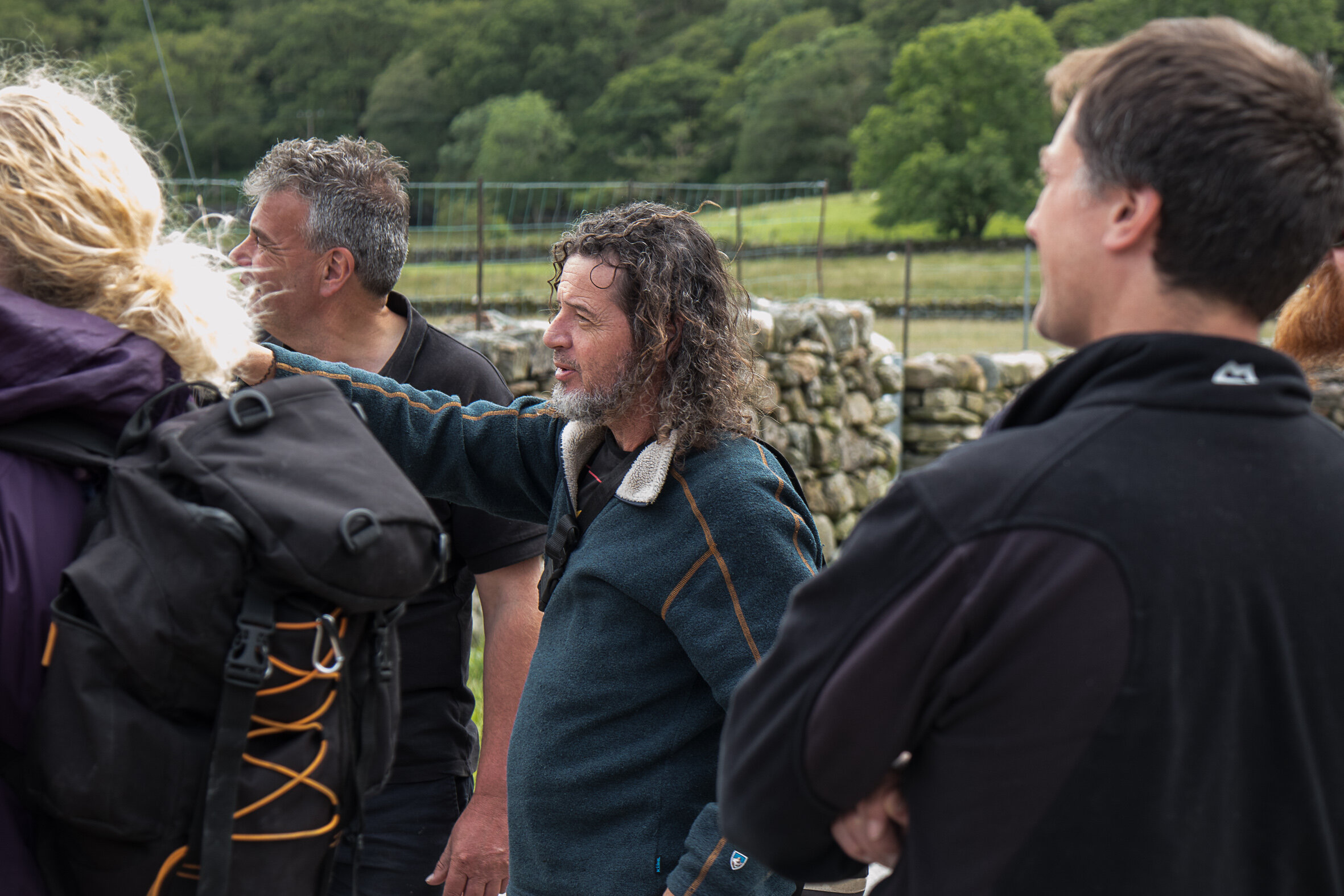
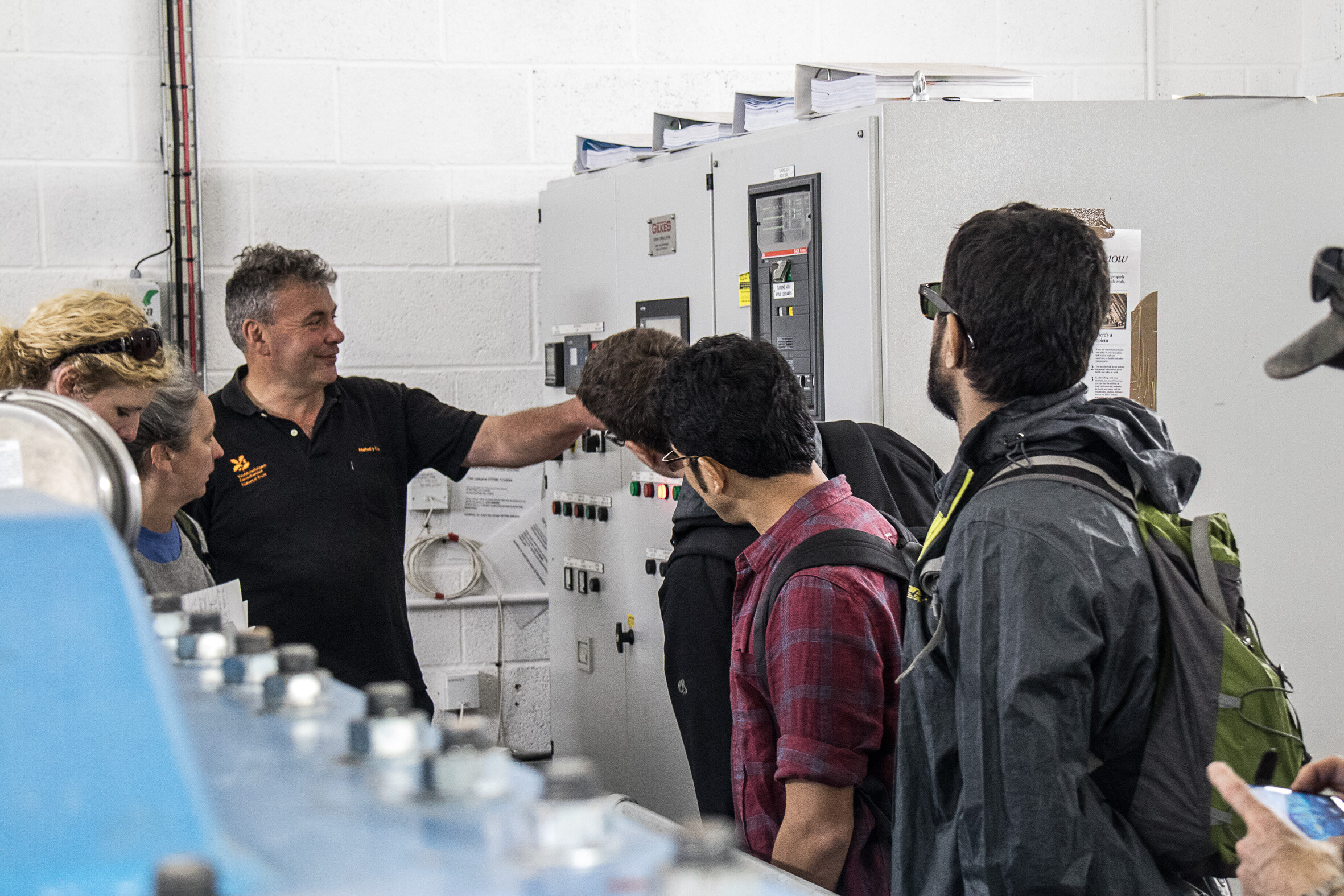
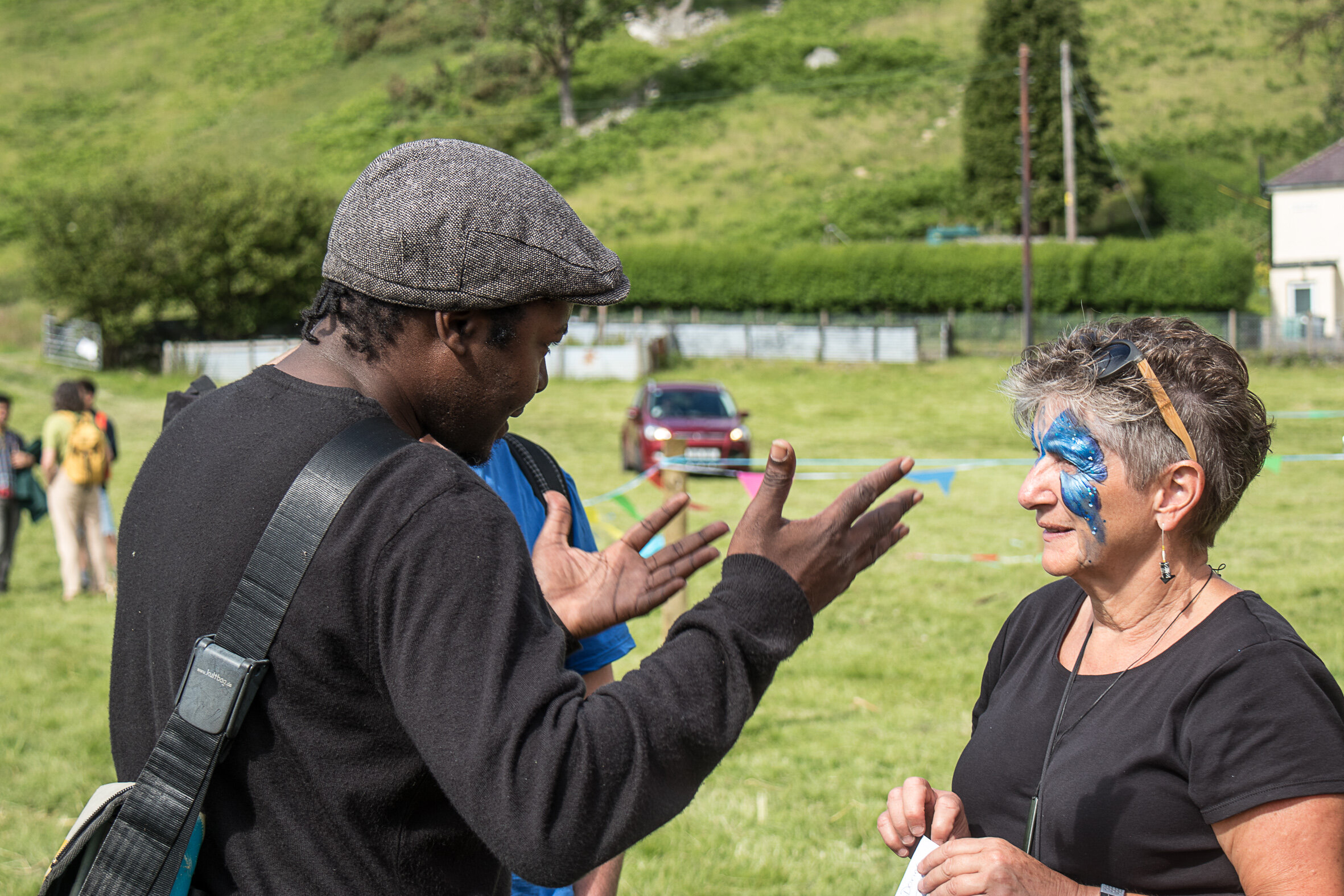
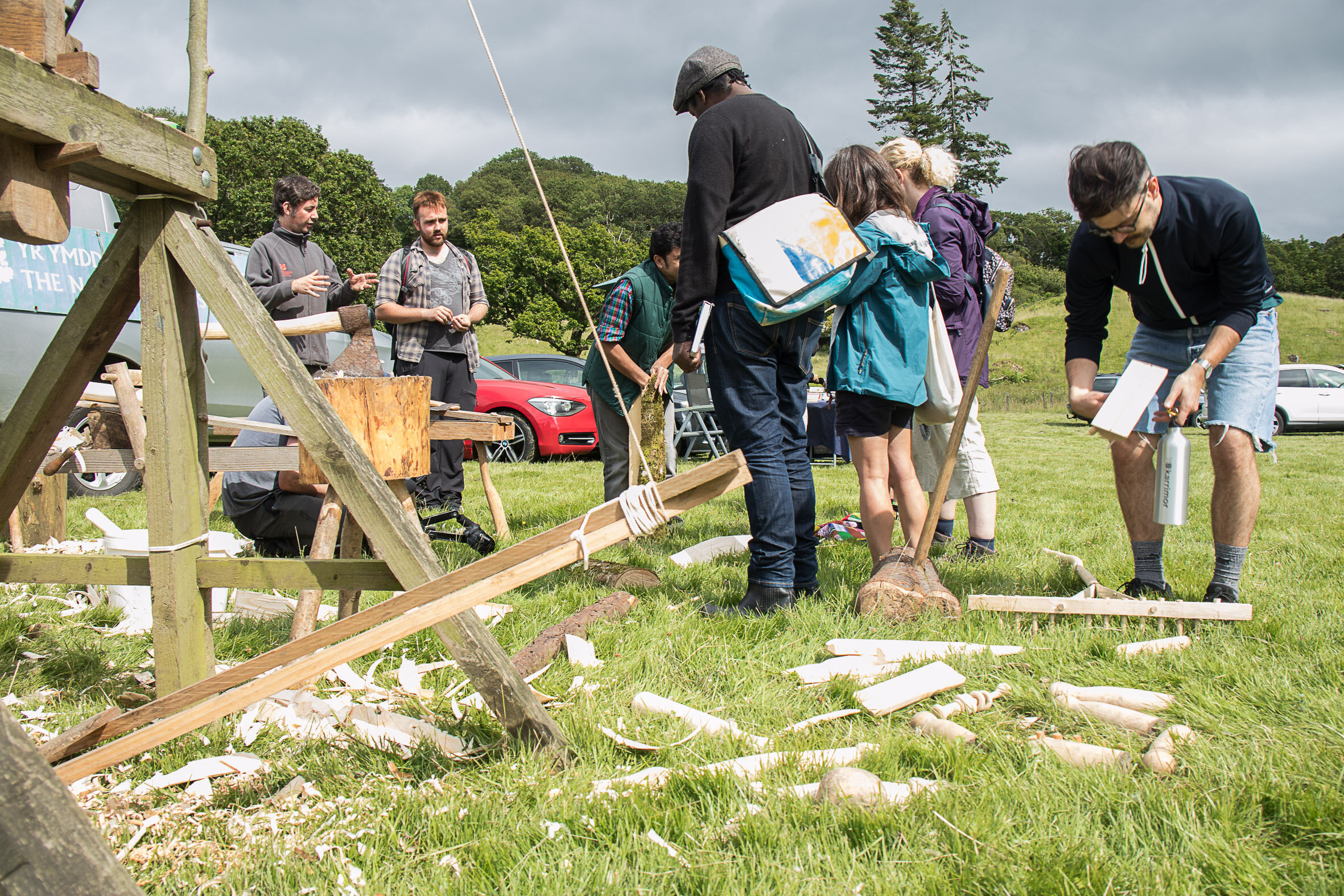
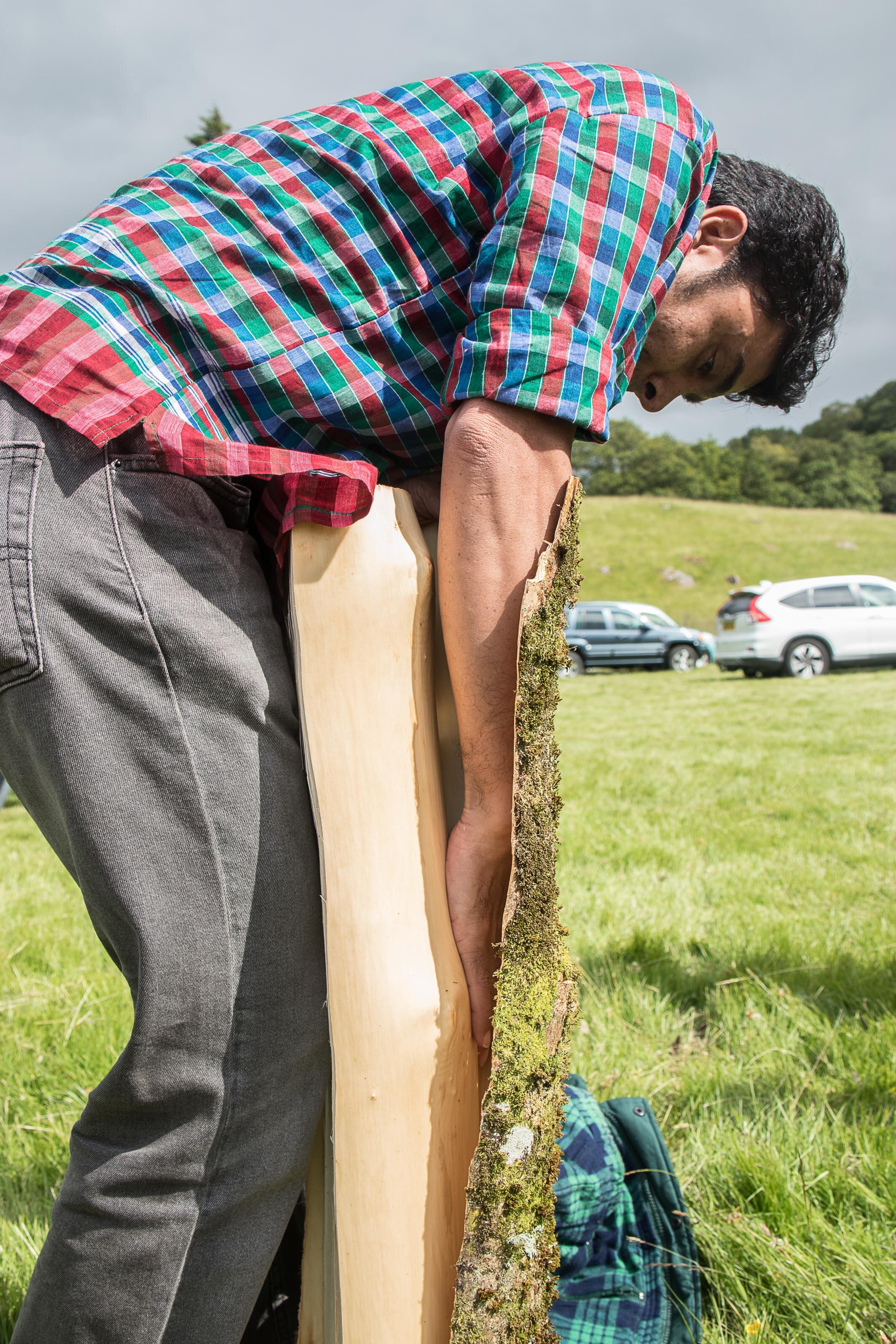
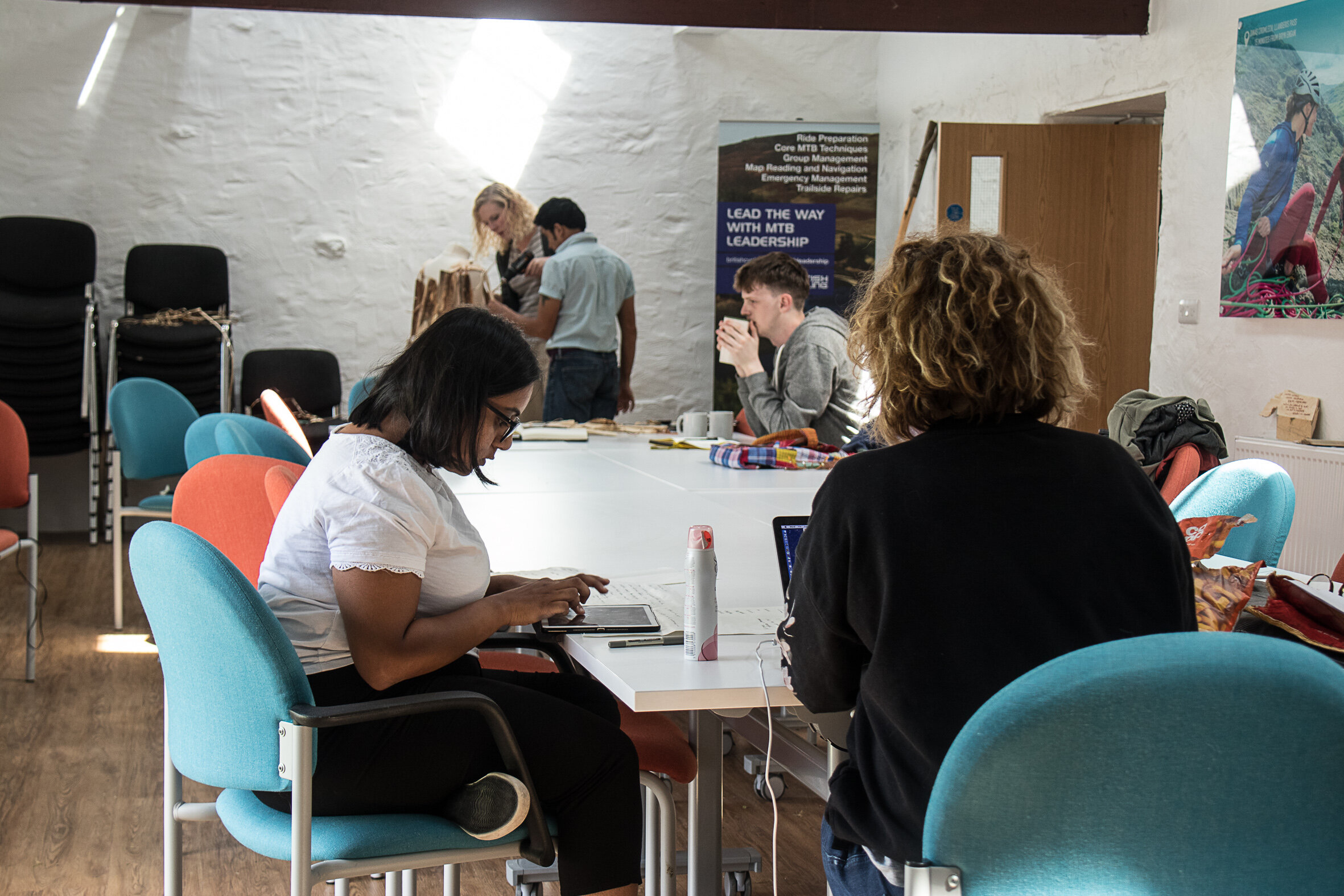
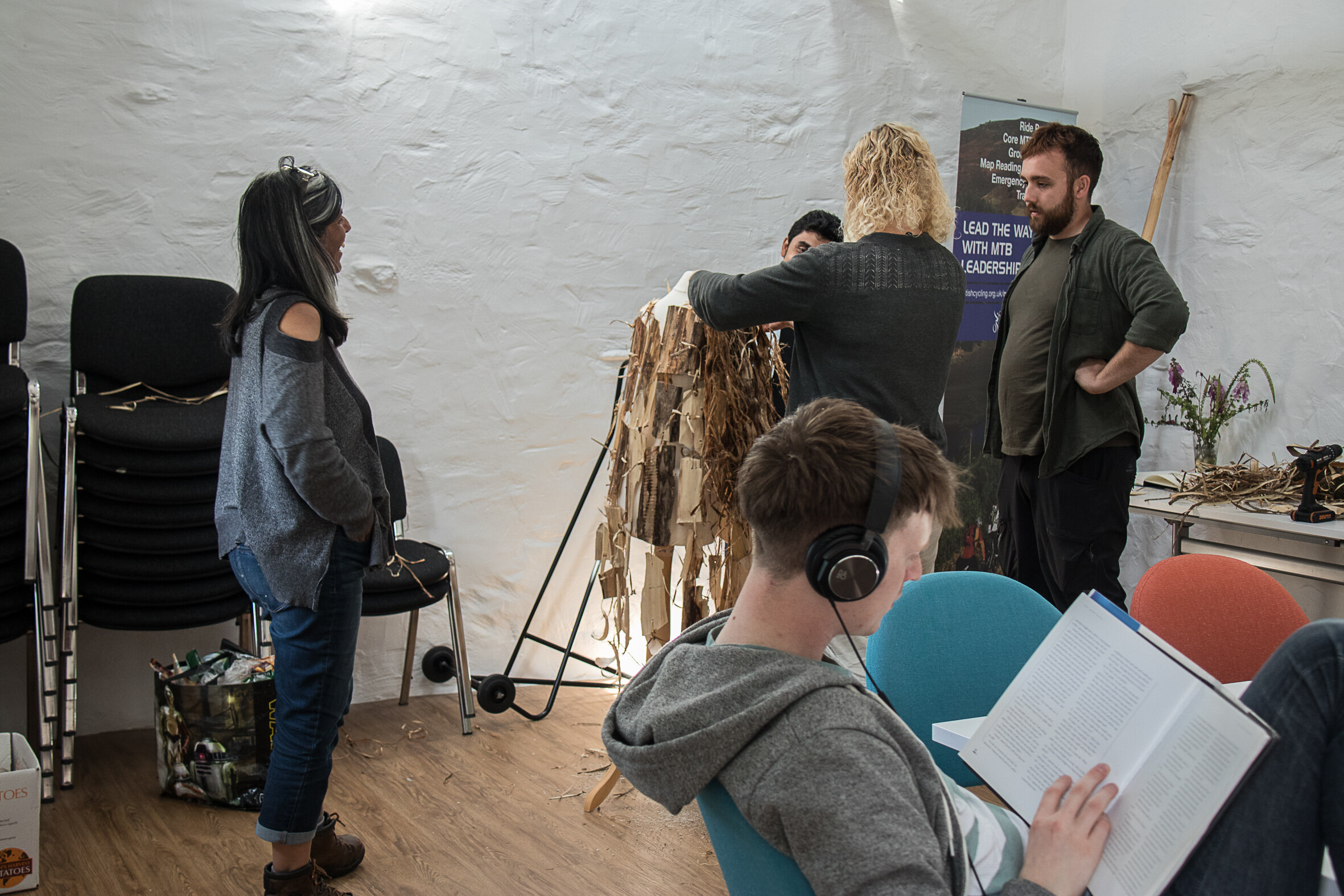
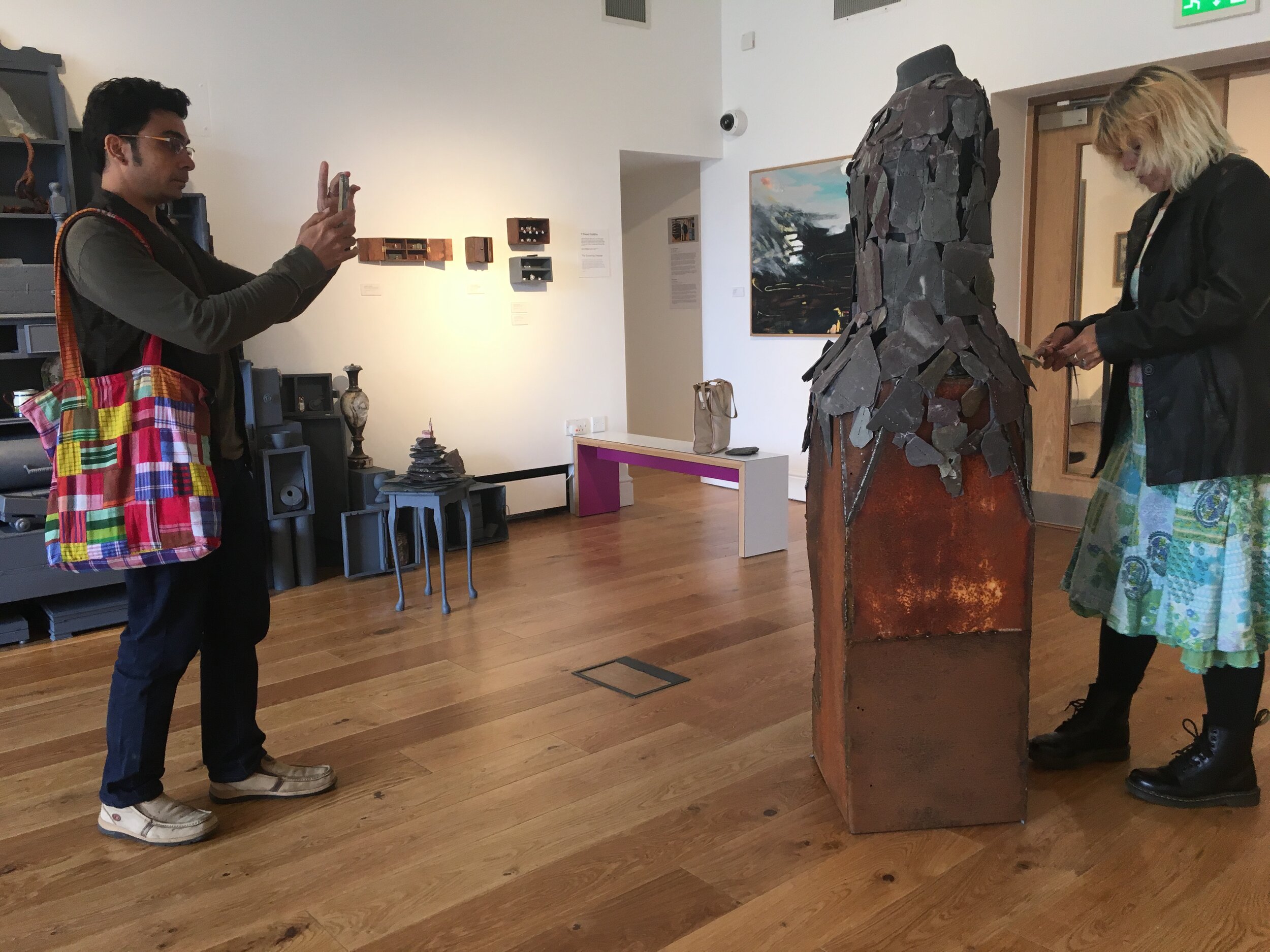
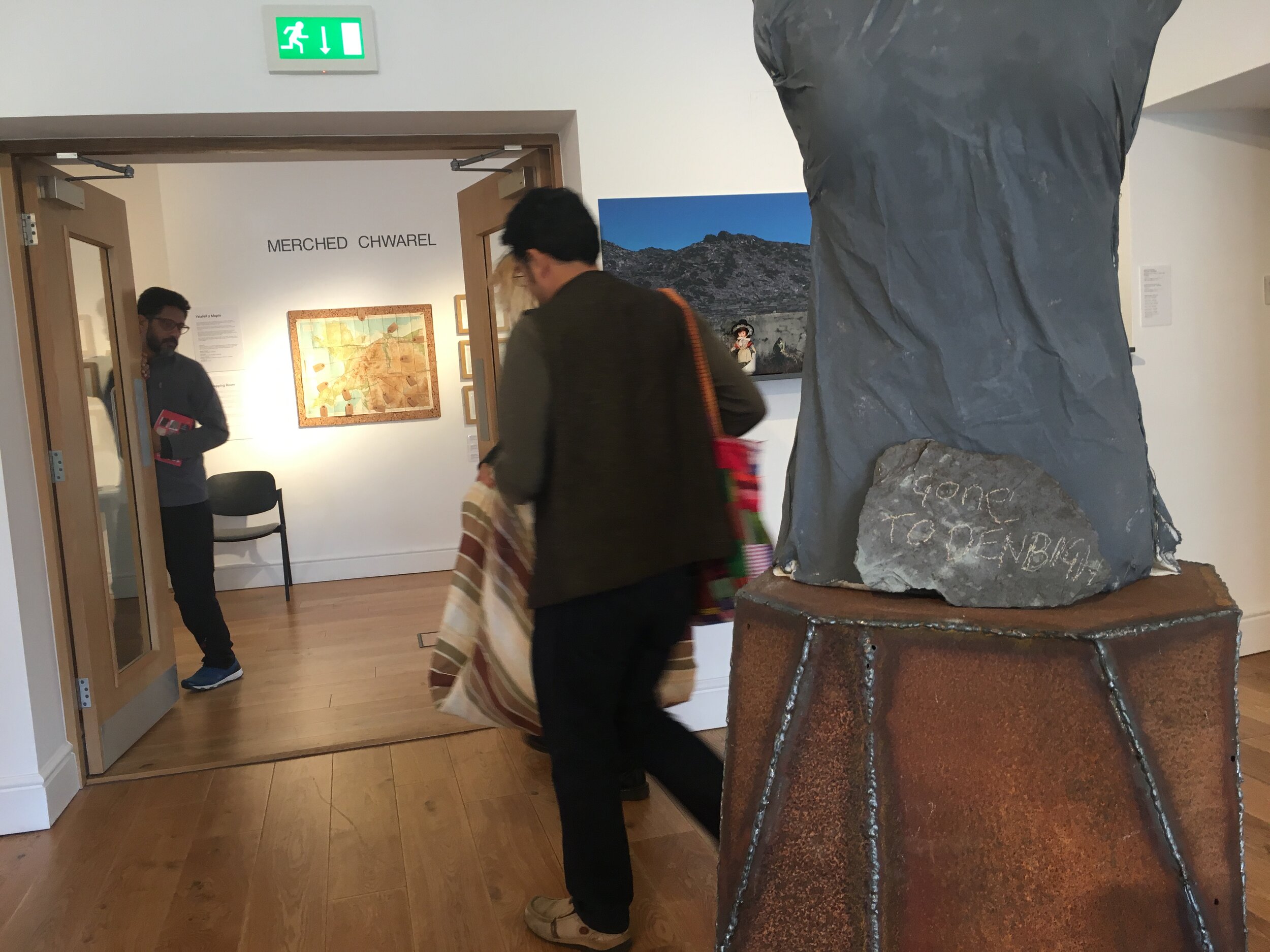
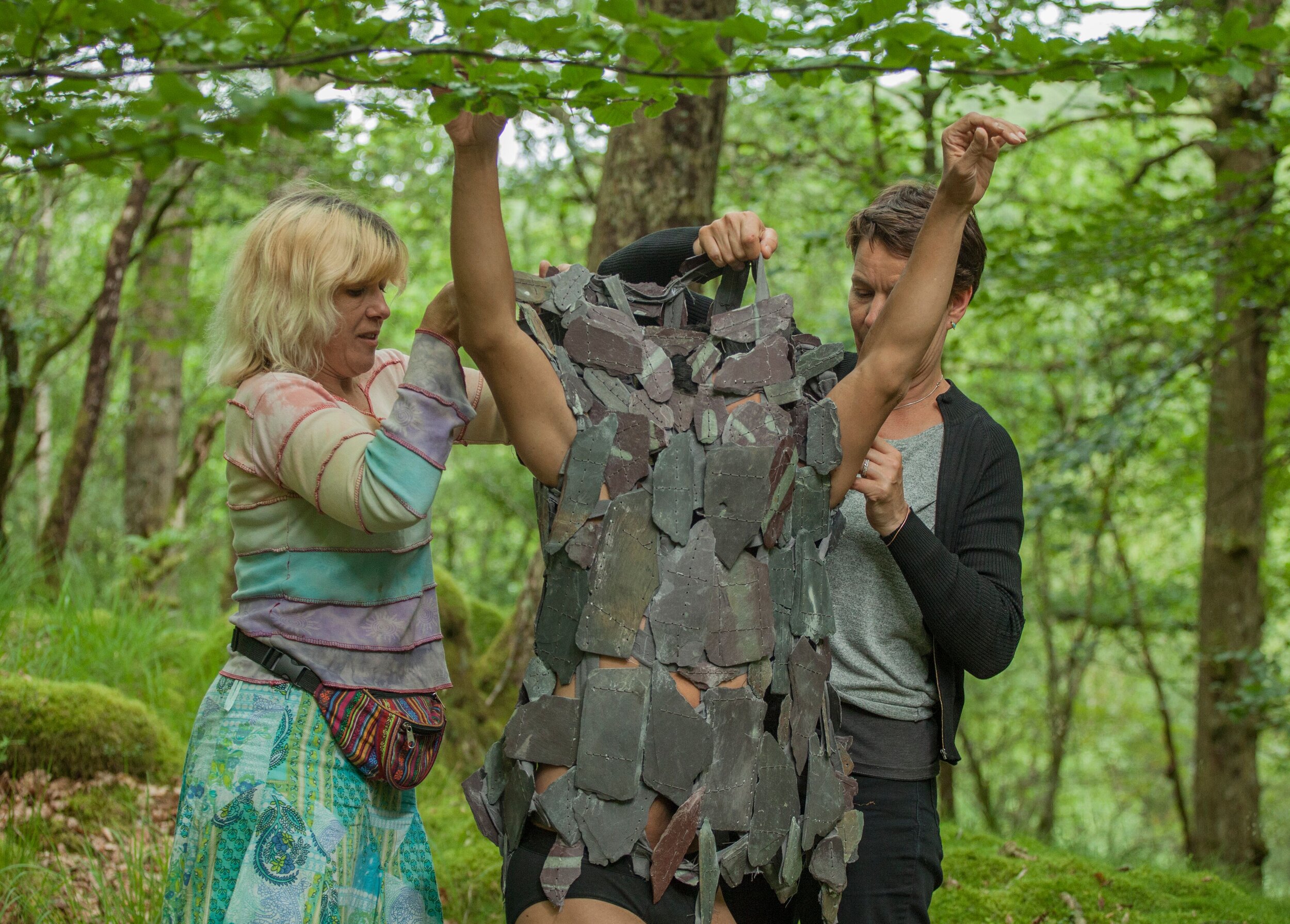
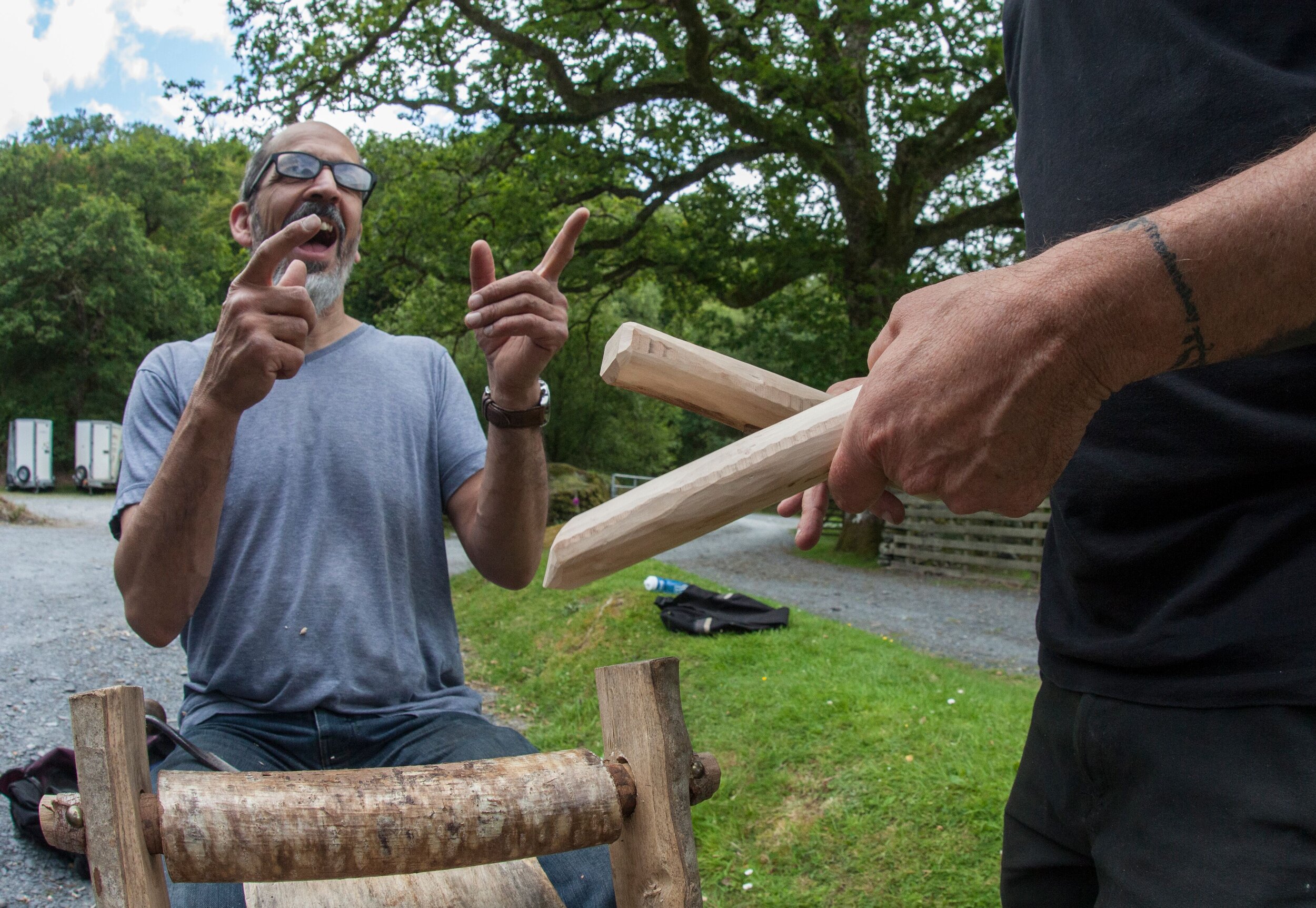
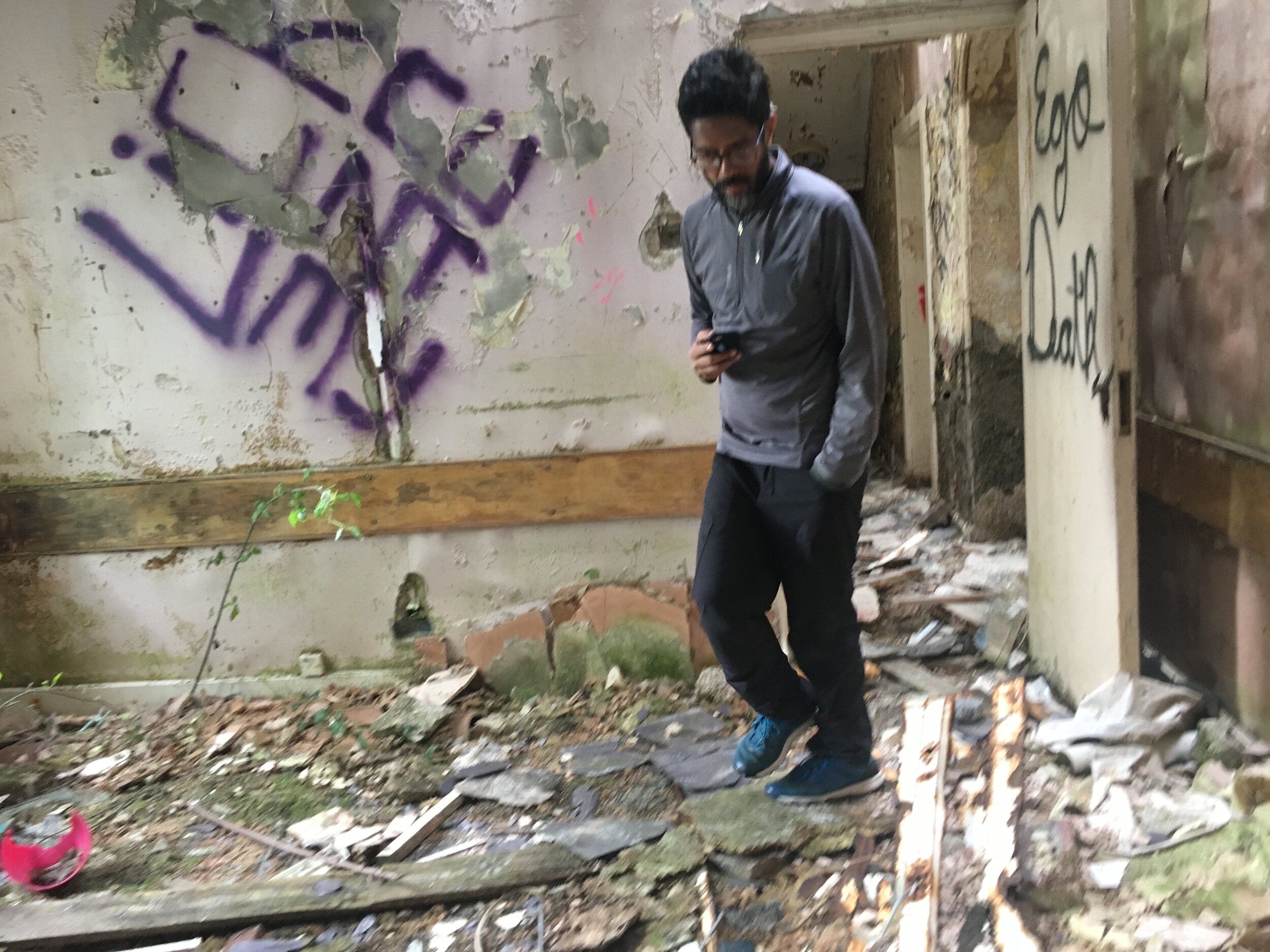
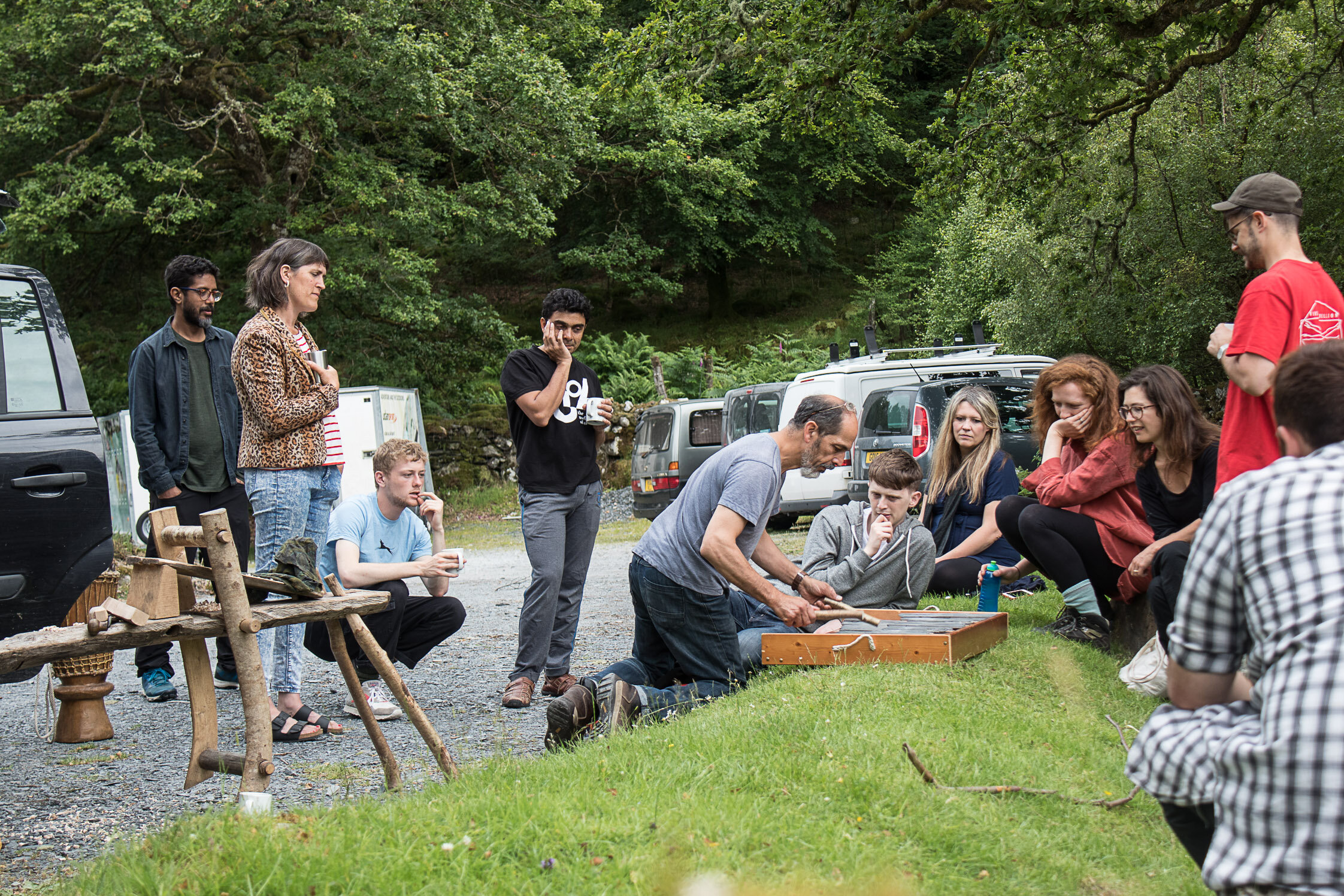
We also ran a two hour session with 60 young people at Ysgol Dyffryn Ogwen School, using the results to ‘decorate’ the room for the Climate Conversations, Makers Supper.
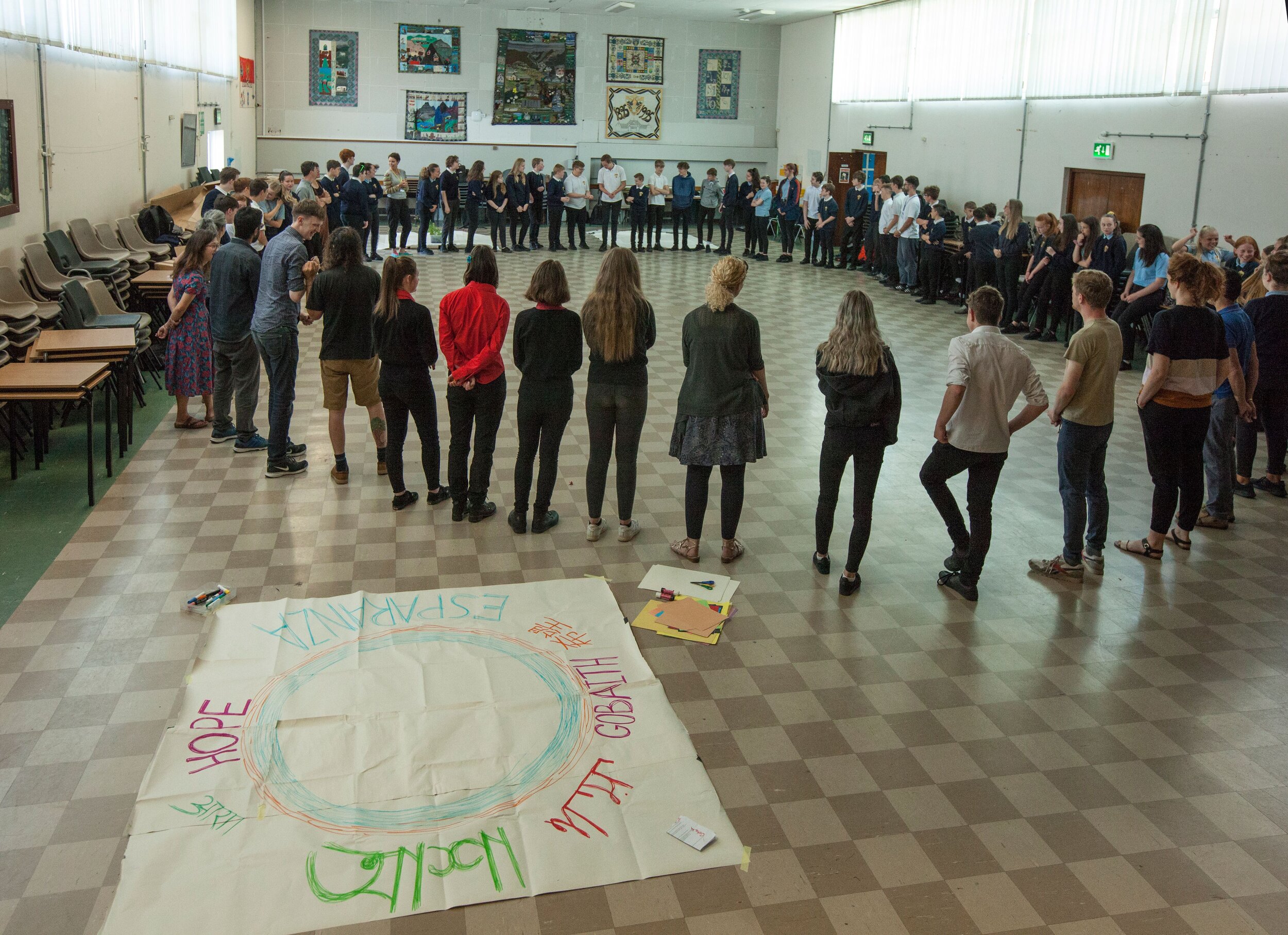
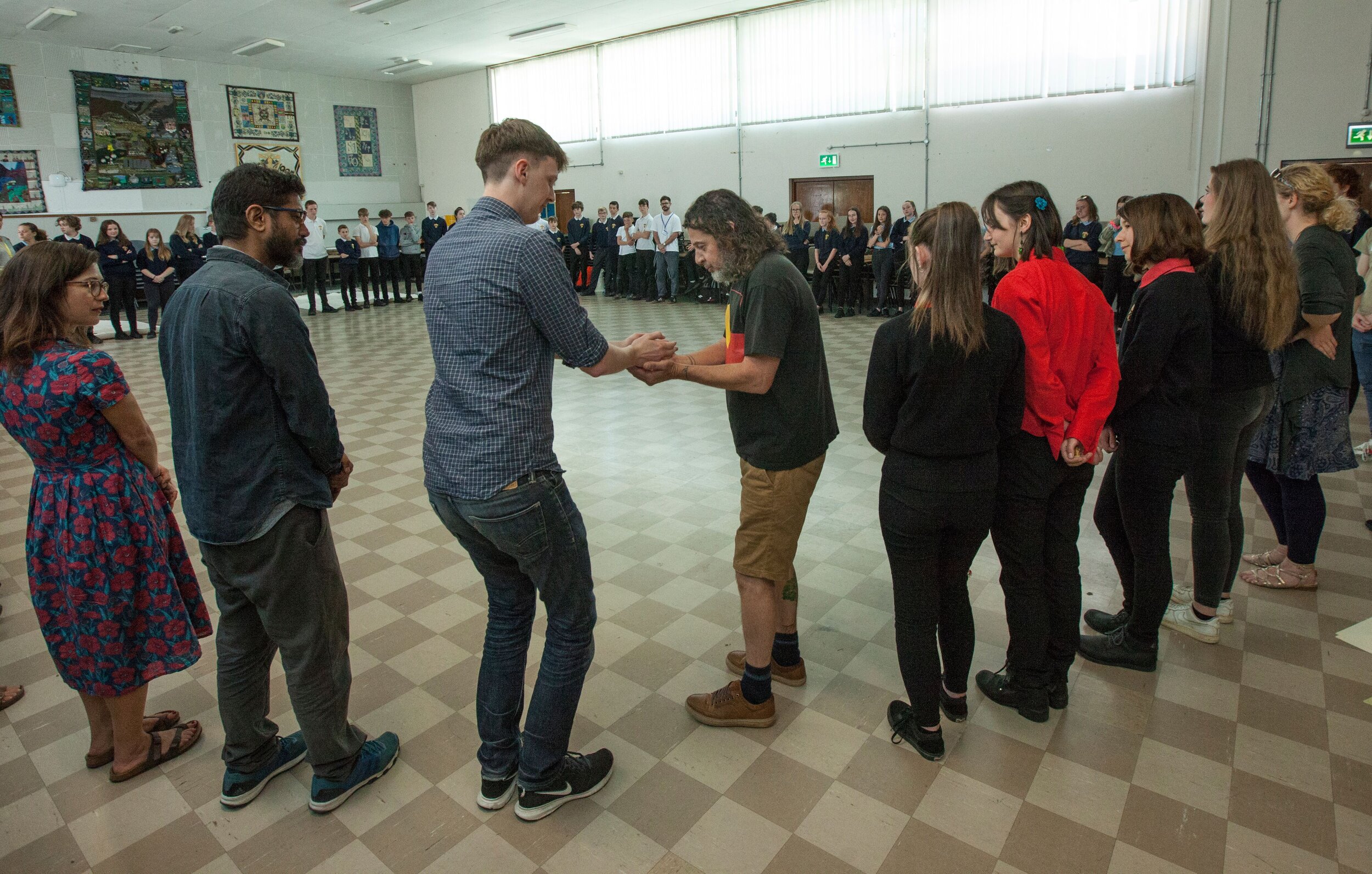
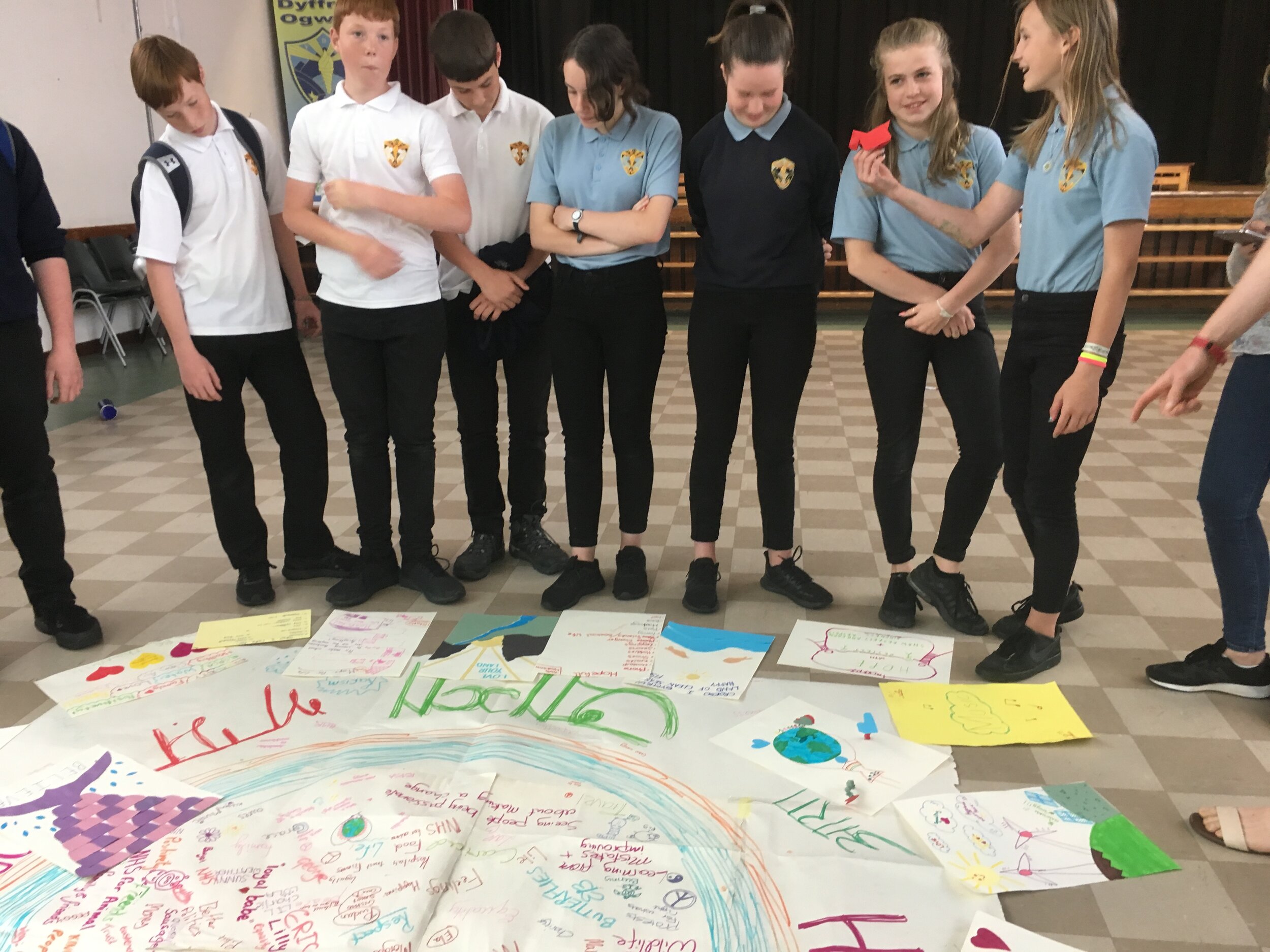
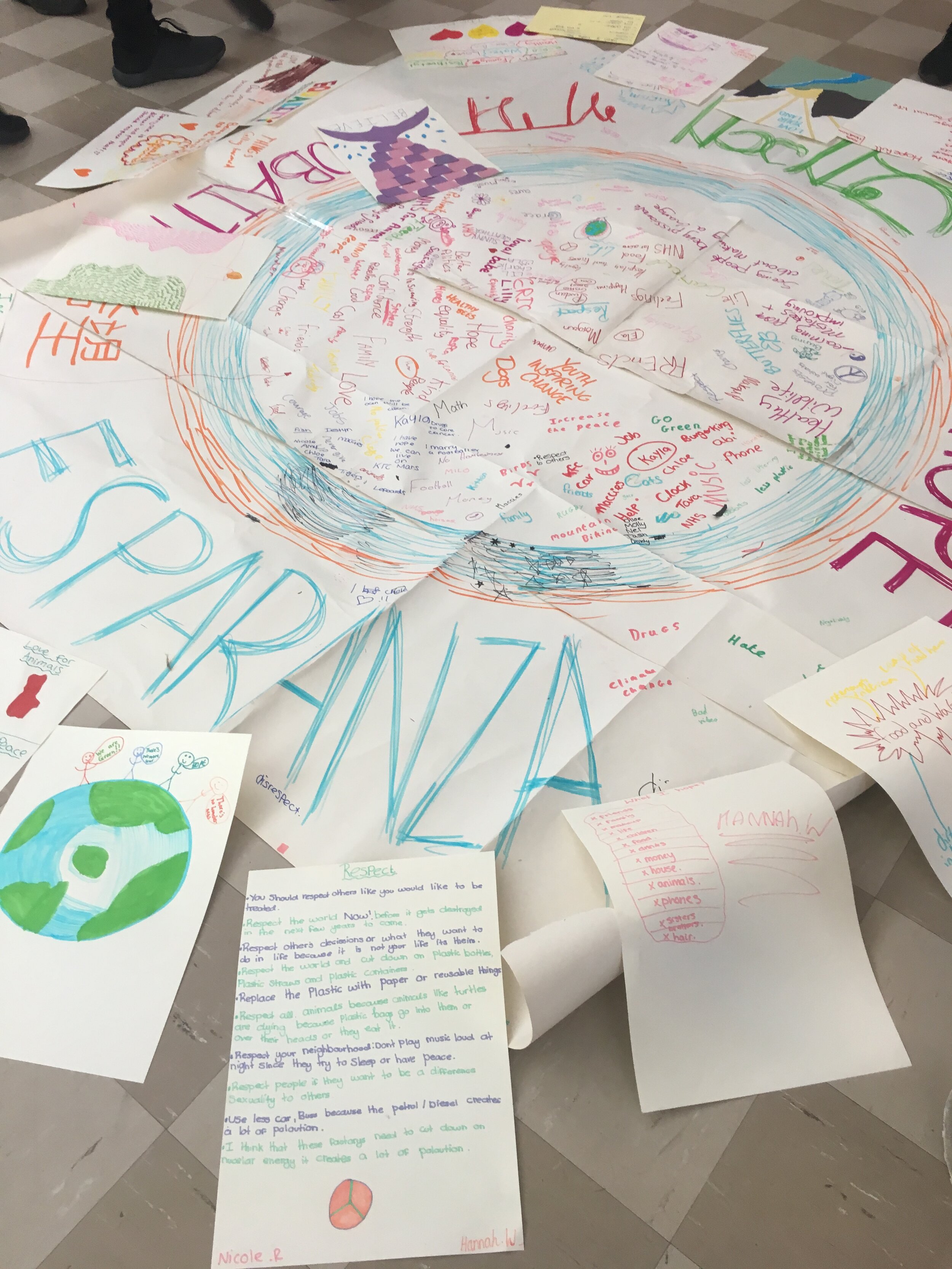
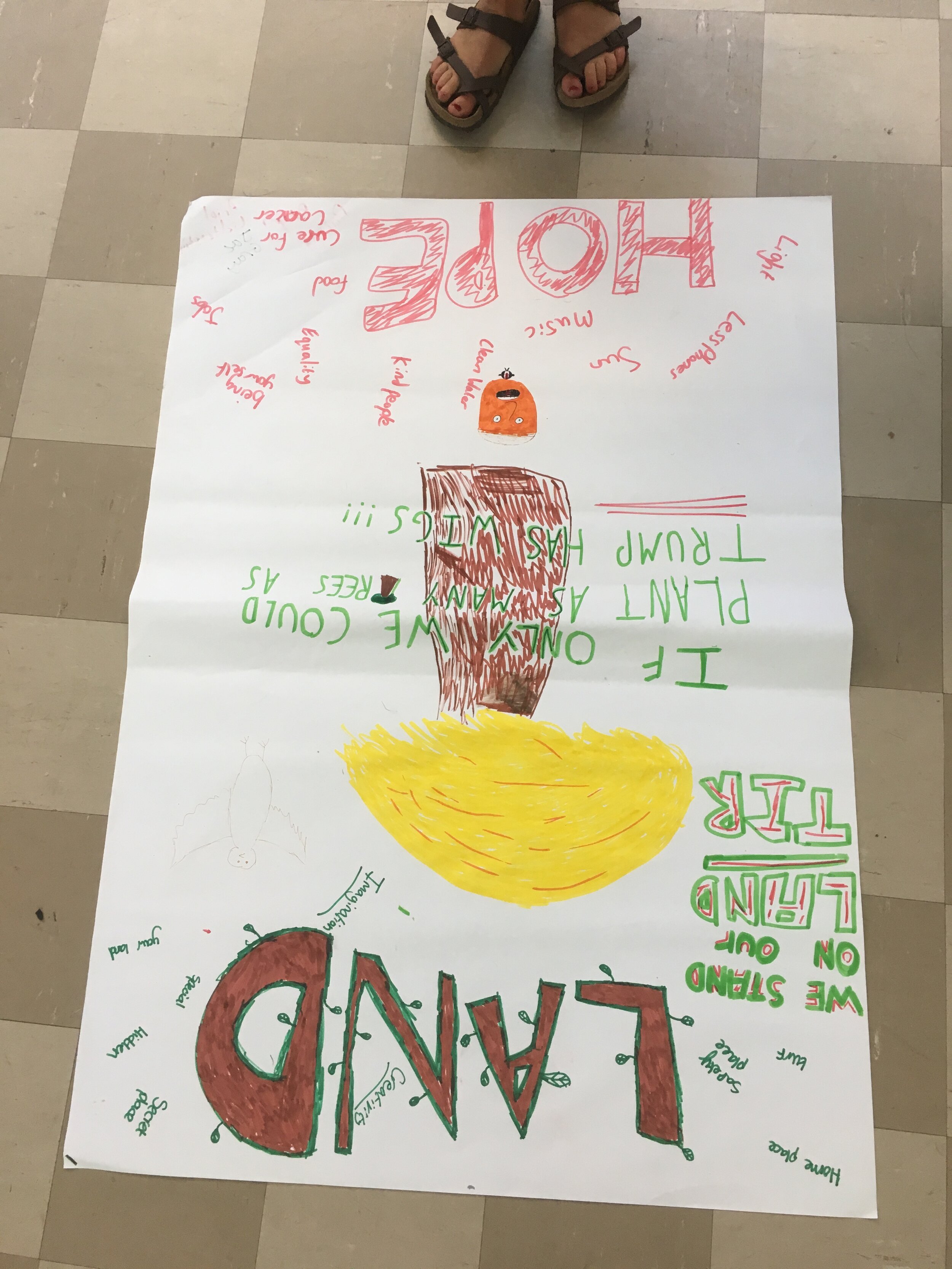
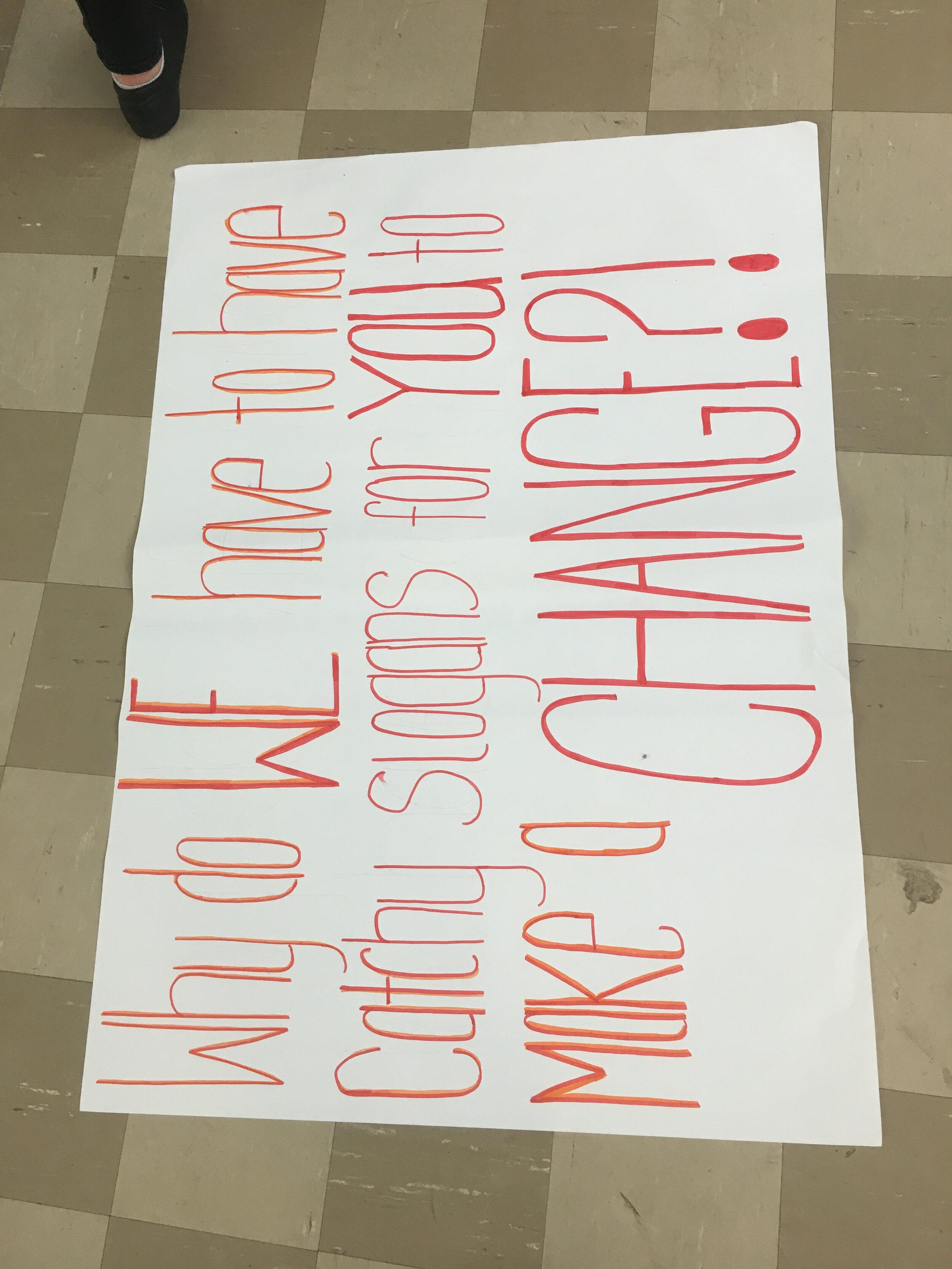
the results?
“One can get used to stepping over the bodies of the homeless or migrants on one’s way to the office every morning. One can follow the melting of the polar ice in real time or the rise of the oceans and the panicked pell-mell of migrations of animals and humans alike. One can tell oneself that the recovery, or dose of authority or eco-feminism will eventually fix all this. Continuing in such a manner is possible at the cost of suppressing our feeling that the society we live in is intrinsically criminal”
- For the Ones to Come, by The Invisible Committee. Quote handed out at the ‘Money’ Climate Change conversation by Rabab Ghazoul and Rahda Patel.
The residency was designed to be just a beginning, many beginnings. I know that sounds trite, but in this case it really is the case. Some have started to work on new projects, or have got shows as a result of the residency (including Denise, who so kindly cooked for us even though she is now a photographer, ended up getting an exhibition!). We are all still processing, and I, like many of us, have felt our world view profoundly changed by the experience. See here for an attempt to illustrate the extent of the change. NTW have set up a tranche of new ‘located residencies’ for 2020 (I had the privilege of being part of the discussions with those artists - really exciting new projects!), and NTW will also be making a publication and some podcasts, which I’ll share here when they become available.
Meanwhile, I think this paper by Donna Haraway does go some way to illustrate the spirit of where I got to, in many ways. I’ve also found Charles Eisenstein’s writing and podcasts useful, and For the Wild Podcasts (Suzanne Dahliwal now works here!) are great way to consolidate and go further, hearing more from voices of colour and different perspectives. Following Gentle Radical is a source of transformational challenge and inspiration.
My takeaway from the whole experience, if I had to summarise it, is a recommitment to building relationships, working with the complexity and uncertainty and grief of these times by bringing together different experiences and ways of knowing, to try out new ways of being with the world. And to include human and other beings in building “contact zones of complex entanglement. Where all are transformed by the engagement” (Donna Haraway).


